Information Science: PhD


About the Program
The doctoral program.
The doctoral program in Information Science is a research-oriented program in which the student chooses specific fields of specialization, prepares sufficiently in the literature and the research of those fields to pass a qualifying examination, and completes original research culminating in the written dissertation. The degree of Doctor of Philosophy is conferred in recognition of a candidate's grasp of a broad field of learning and distinguished accomplishment in that field through the contribution of an original piece of research revealing high critical ability and powers of imagination and synthesis.
The I School also offers a master's in Information Management and Systems (MIMS), a master's in Information and Data Science (MIDS), and a master's in Information and Cybersecurity (MICS).
Visit School Website
Admission to the PhD Program
We welcome students from a diverse set of backgrounds; some will be technically educated, some educated in the humanities and social sciences.
The I School typically accepts 3-7 PhD students each year from more than 100 applications. Applications are reviewed by a committee of faculty.
Applicants are evaluated holistically on a number of factors. A strong academic record is important, but not sufficient. A critical factor is the ability to demonstrate a research record and agenda that fit well with specific I School faculty. In a small, interdisciplinary program, it is important that applicants clearly indicate in their Statement of Purpose which faculty member(s) they are interested in researching with, and why.
To be eligible to apply to the PhD in Information Management and Systems program, applicants must meet the following requirements:
A bachelor's degree or its recognized equivalent from an accredited institution.
Superior scholastic record, normally well above a 3.0 GPA.
Indication of appropriate research goals, described in the Statement of Purpose.
For applicants whose academic work has been in a language other than English, the Test of English as a Foreign Language (TOEFL) or International English Language Testing System (IELTS).
Not required: GRE/GMAT. Starting Fall 2021, we no longer require the GRE or GMAT. We recommend you put your time and effort towards the required application materials.
Further information about I School Ph.D. Admissions can be found on the I School website.
Applying for Graduate Admission
Thank you for considering UC Berkeley for graduate study! UC Berkeley offers more than 120 graduate programs representing the breadth and depth of interdisciplinary scholarship. The Graduate Division hosts a complete list of graduate academic programs, departments, degrees offered, and application deadlines can be found on the Graduate Division website.
Prospective students must submit an online application to be considered for admission, in addition to any supplemental materials specific to the program for which they are applying. The online application and steps to take to apply can be found on the Graduate Division website .
Admission Requirements
The minimum graduate admission requirements are:
A bachelor’s degree or recognized equivalent from an accredited institution;
A satisfactory scholastic average, usually a minimum grade-point average (GPA) of 3.0 (B) on a 4.0 scale; and
Enough undergraduate training to do graduate work in your chosen field.
For a list of requirements to complete your graduate application, please see the Graduate Division’s Admissions Requirements page . It is also important to check with the program or department of interest, as they may have additional requirements specific to their program of study and degree. Department contact information can be found here .
Where to apply?
Visit the Berkeley Graduate Division application page .
Doctoral Degree Requirements
Program design.
The School of Information is an interdisciplinary school examining the design, organization, and management of information and information systems. The School of Information draws on the expertise not only of its own faculty but of the full Berkeley campus. We encourage students to take full advantage of being at this world-class University and not feel bound by disciplinary boundaries.
The PhD degree program at the School of Information is a research program. Each student is expected to work with his or her adviser to ensure that the program of study includes:
- A thorough understanding of research methods and research design.
- The ability to review current research critically.
- The ability to understand emerging trends from an interdisciplinary perspective.
Expected PhD Timeline:
- Semester 1: Identify a faculty adviser
- Semesters 1–4: Complete breadth courses; complete major and minor requirements
- Semester 4: Complete the preliminary research paper
- Semester 5: Complete preliminary exam
- Semester 6–8: Complete qualifying exam; advance to candidacy
- Four semesters after qualifying exam: Complete dissertation and give presentation
Please refer to the School of Information website for more information.
Breadth Courses
| Code | Title | Units |
|---|---|---|
| I. Foundation | ||
| Concepts of Information | 3 | |
| II. Engineering and Design | ||
| Information Organization and Retrieval | 3 | |
| Introduction to Programming and Computation | 2 | |
| Introduction to Data Structures and Analytics | 2 | |
| Introduction to User Experience Design | 4 | |
| Information Visualization and Presentation | 4 | |
| Applied Machine Learning | 4 | |
| Front-End Web Architecture | 3 | |
| Back-End Web Architecture | 3 | |
| Applied Natural Language Processing | 3 | |
| Natural Language Processing | 4 | |
| Theory and Practice of Tangible User Interfaces | 4 | |
| Interface Aesthetics | 3 | |
| III. Social Aspects of Information | ||
| Research Design and Applications for Data and Analysis | 3 | |
| Social Issues of Information | 3 | |
| User Experience Research | 3 | |
| Human-Computer Interaction (HCI) Research | 3 | |
| Leadership and Management | 3 | |
| Social Psychology and Information Technology | 3 | |
| Quantitative Research Methods for Information Systems and Management | 3 | |
| Qualitative Research Methods for Information Systems and Management | 3 | |
| Information and Communications Technology for Development | 3 | |
| Big Data and Development | 3 | |
| IV. Information Economics, Law and Policy | ||
| Information Law and Policy | 3 | |
| Information Technology Economics, Strategy, and Policy | 3 | |
| Technology and Delegation | 3 | |
| Public Interest Cybersecurity: The Citizen Clinic Practicum | 3 | |
| Special Topics in Social Science and Policy | 2-4 | |
Major/Minor Areas
| Code | Title | Units |
|---|---|---|
| Human-Computer Interaction | ||
| Introduction to User Experience Design | 4 | |
| User Experience Research | 3 | |
| Human-Computer Interaction (HCI) Research | 3 | |
| Information Visualization and Presentation | 4 | |
| Theory and Practice of Tangible User Interfaces | 4 | |
| Interface Aesthetics | 3 | |
| Special Topics in Information (Advanced HCI Research and Interaction Design only) | 1-4 | |
| Special Topics in Technology (Biosensory Computing only) | 2-4 | |
| Plus outside courses upon approval of your advisor | ||
| Information Economics and Policy | ||
| Information Technology Economics, Strategy, and Policy | 3 | |
| Plus outside courses upon approval of your advisor | ||
| Information Law and Policy | ||
| Information Law and Policy | 3 | |
| Technology and Delegation | 3 | |
| Public Interest Cybersecurity: The Citizen Clinic Practicum | 3 | |
| Special Topics in Social Science and Policy (Introduction to Politics of Information and Seminar in the Politics of Information only) | 2-4 | |
| Plus outside courses upon approval of your advisor | ||
| Information Organization and Retrieval | ||
| Information Organization and Retrieval | 3 | |
| Information Visualization and Presentation | 4 | |
| Applied Machine Learning | 4 | |
| Applied Natural Language Processing | 3 | |
| Data Engineering | 4 | |
| Natural Language Processing | 4 | |
| Plus outside courses upon approval of your advisor | ||
| Information Systems Design | ||
| Introduction to Programming and Computation | 2 | |
| Introduction to Data Structures and Analytics | 2 | |
| Applied Machine Learning | 4 | |
| Front-End Web Architecture | 3 | |
| Back-End Web Architecture | 3 | |
| Privacy Engineering | 3 | |
| Data Engineering | 4 | |
| Applied Natural Language Processing | 3 | |
| Natural Language Processing | 4 | |
| Plus outside courses upon approval of your advisor | ||
| Social Aspects of Information | ||
| Research Design and Applications for Data and Analysis | 3 | |
| Social Issues of Information | 3 | |
| User Experience Research | 3 | |
| Concepts of Information | 3 | |
| Leadership and Management | 3 | |
| Social Psychology and Information Technology | 3 | |
| Experiments and Causal Inference | 3 | |
| Quantitative Research Methods for Information Systems and Management | 3 | |
| Qualitative Research Methods for Information Systems and Management | 3 | |
| Big Data and Development | 3 | |
| Plus outside courses upon approval of your advisor | ||
| Information and Communication Technologies and Devleopment | ||
| Social Issues of Information | 3 | |
| Introduction to User Experience Design | 4 | |
| User Experience Research | 3 | |
| Information and Communications Technology for Development | 3 | |
| Big Data and Development | 3 | |
| Plus outside courses upon approval of your advisor | ||
Related Courses
Info 201 research design and applications for data and analysis 3 units.
Terms offered: Fall 2024, Spring 2024, Fall 2023 Introduces the data sciences landscape, with a particular focus on learning data science techniques to uncover and answer the questions students will encounter in industry. Lectures, readings, discussions, and assignments will teach how to apply disciplined, creative methods to ask better questions, gather data, interpret results, and convey findings to various audiences. The emphasis throughout is on making practical contributions to real decisions that organizations will and should make. Course must be taken for a letter grade to fulfill degree requirements. Research Design and Applications for Data and Analysis: Read More [+]
Hours & Format
Fall and/or spring: 15 weeks - 1.5 hours of lecture per week
Additional Format: One and one-half hours of lecture per week.
Additional Details
Subject/Course Level: Information/Graduate
Grading: Letter grade.
Research Design and Applications for Data and Analysis: Read Less [-]
INFO 202 Information Organization and Retrieval 3 Units
Terms offered: Fall 2024, Fall 2023, Fall 2022 This course introduces the intellectual foundations of information organization and retrieval: conceptual modeling, semantic representation, vocabulary and metadata design, classification, and standardization, as well as information retrieval practices, technology, and applications, including computational processes for analyzing information in both textual and non-textual formats. Information Organization and Retrieval: Read More [+]
Rules & Requirements
Prerequisites: Students should have a working knowledge of the Python programming language
Fall and/or spring: 15 weeks - 3 hours of lecture per week
Additional Format: Three hours of lecture per week.
Information Organization and Retrieval: Read Less [-]
INFO 203 Social Issues of Information 3 Units
Terms offered: Spring 2024, Spring 2023, Spring 2022 This course is designed to be an introduction to the topics and issues associated with information and information technology and its role in society. Throughout the semester we will consider both the consequence and impact of technologies on social groups and on social interaction and how society defines and shapes the technologies that are produced. Students will be exposed to a broad range of applied and practical problems, theoretical issues, as well as methods used in social scientific analysis. The four sections of the course are: 1) theories of technology in society, 2) information technology in workplaces 3) automation vs. humans, and 4) networked sociability. Social Issues of Information: Read More [+]
Social Issues of Information: Read Less [-]
INFO 205 Information Law and Policy 3 Units
Terms offered: Spring 2024, Spring 2023, Spring 2022 This course uses examples from various commercial domains—retail, health, credit, entertainment, social media, and biosensing/quantified self—to explore legal and ethical issues including freedom of expression, privacy, research ethics, consumer protection, information and cybersecurity, and copyright. The class emphasizes how existing legal and policy frameworks constrain, inform, and enable the architecture, interfaces, data practices, and consumer facing policies and documentation of such offerings; and, fosters reflection on the ethical impact of information and communication technologies and the role of information professionals in legal and ethical work. Information Law and Policy: Read More [+]
Prerequisites: Consent of instructor required for nonmajors
Instructor: Mulligan
Information Law and Policy: Read Less [-]
INFO 206A Introduction to Programming and Computation 2 Units
Terms offered: Fall 2024, Fall 2023, Fall 2022 This course introduces the basics of computer programming that are essential for those interested in computer science, data science, and information management. Students will write their own interactive programs (in Python) to analyze data, process text, draw graphics, manipulate images, and simulate physical systems. Problem decomposition, program efficiency, and good programming style are emphasized throughout the course. Introduction to Programming and Computation: Read More [+]
Fall and/or spring: 7.5 weeks - 4 hours of lecture per week
Additional Format: Four hours of lecture per week for seven and one-half weeks.
Instructor: Farid
Introduction to Programming and Computation: Read Less [-]
INFO 206B Introduction to Data Structures and Analytics 2 Units
Terms offered: Fall 2024, Fall 2023, Fall 2022 The ability to represent, manipulate, and analyze structured data sets is foundational to the modern practice of data science. This course introduces students to the fundamentals of data structures and data analysis (in Python). Best practices for writing code are emphasized throughout the course. This course forms the second half of a sequence that begins with INFO 106. It may also be taken as a stand-alone course by any student that has sufficient Python experience. Introduction to Data Structures and Analytics: Read More [+]
Prerequisites: INFO 206A or equivalent, or permission of instructor
Credit Restrictions: Course must be completed for a letter grade to fulfill degree requirements.
Formerly known as: Information 206
Introduction to Data Structures and Analytics: Read Less [-]
INFO 213 Introduction to User Experience Design 4 Units
Terms offered: Fall 2024, Fall 2023, Fall 2022 This course will provide an introduction to the field of Human-Computer Interaction (HCI). Students will learn to apply design thinking to User Experience (UX) design, prototyping, & evaluation. The course will also cover special topic areas within HCI. Introduction to User Experience Design: Read More [+]
Introduction to User Experience Design: Read Less [-]
INFO 214 User Experience Research 3 Units
Terms offered: Spring 2024, Spring 2023, Spring 2022 This course addresses concepts and methods of user experience research, from understanding and identifying needs, to evaluating concepts and designs, to assessing the usability of products and solutions. We emphasize methods of collecting and interpreting qualitative data about user activities, working both individually and in teams, and translating them into design decisions. Students gain hands-on practice with observation, interview, survey , focus groups, and expert review. Team activities and group work are required during class and for most assignments. Additional topics include research in enterprise, consulting, and startup organizations, lean/agile techniques, mobile research approaches, and strategies for communicating findings. User Experience Research: Read More [+]
Additional Format: Three hours of Lecture per week for 15 weeks.
User Experience Research: Read Less [-]
INFO 215 Product Design Studio 3 Units
Terms offered: Fall 2024, Fall 2023 This course will give participants hands-on digital product design experience oriented around current industry practice. The course will be project-based with an emphasis on iteration, practice, and critique. During the course, participants will work on a series of design projects through a full design process, including developing appropriate design deliverables, gathering feedback, and iterating on designs. Product Design Studio: Read More [+]
Objectives & Outcomes
Course Objectives: The course objective is to provide students interested in web and mobile Product Design with skills, practice, and experience that will prepare them for careers in product design and design-related roles.
Prerequisites: DES INV 15 or COMPSCI 160 or INFO 213 AND INFO 214; or permission of the instructor. Students can take INFO 214 and INFO 215 concurrently, but students may not drop INFO 214 and remain in INFO 215
Formerly known as: Information Systems and Management 215
Product Design Studio: Read Less [-]
INFO 217A Human-Computer Interaction (HCI) Research 3 Units
Terms offered: Spring 2024, Fall 2021, Fall 2020 This course is a graduate-level introduction to HCI research. Students will learn to conduct original HCI research by reading and discussing research papers while collaborating on a semester-long research project. Each week the class will focus on a theme of HCI research and review foundational and cutting-edge research relevant to that theme. The class will focus on the following areas of HCI research: ubiquitous computing , social computing, critical theory, and human-AI interaction. In addition to these research topics the class will introduce common qualitative and quantitative methodologies in HCI research. Human-Computer Interaction (HCI) Research: Read More [+]
Instructor: Salehi
Human-Computer Interaction (HCI) Research: Read Less [-]
INFO 218 Concepts of Information 3 Units
Terms offered: Spring 2024, Spring 2022, Spring 2020 As it's generally used, "information" is a collection of notions, rather than a single coherent concept. In this course, we'll examine conceptions of information based in information theory, philosophy, social science, economics, and history. Issues include: How compatible are these conceptions; can we talk about "information" in the abstract? What work do these various notions play in discussions of literacy, intellectual property, advertising, and the political process? And where does this leave "information studies" and "the information society"? Concepts of Information: Read More [+]
Prerequisites: Graduate standing
Instructors: Duguid, Nunberg
Concepts of Information: Read Less [-]
INFO 225 Leadership and Management 3 Units
Terms offered: Fall 2024, Fall 2023, Fall 2021 This course focuses on the practice of leadership, collaboration, and people management in contemporary, distributed, information and technology-rich organizations. Not just for potential people managers, this course is derived from the premise that a foundation in leadership, management, and collaboration is essential for individuals in all roles, at any stage of their career. To build this foundation we will take a hybrid approach, engaging literature from disciplines such as social psychology, management, and organizational behavior, as well as leveraging case studies and practical exercises. The course will place a special emphasis on understanding and reacting to social dynamics in workplace hierarchies and teams. Leadership and Management: Read More [+]
Leadership and Management: Read Less [-]
INFO 231 Decisions and Algorithms 3 Units
Terms offered: Fall 2024, Spring 2013, Spring 2011 This class is for graduate students interested in getting an advanced understanding of judgments and decisions made with predictive algorithms. The course will survey the vast literature on the psychology of how people arrive at judgments and make decisions with the help of statistical information, focused mostly on experimental lab evidence from cognitive and social psychology. Then study the burgeoning evidence on how people use statistical algorithms in practice, exploring field evidence from a range of settings from criminal justice and healthcare to housing and labor markets. Special attention is paid to psychological principles that impact the effectiveness and fairness of algorithms deployed at scale. Decisions and Algorithms: Read More [+]
Course Objectives: Help students understand systematic human errors and explore potential algorithmic solutions.
Decisions and Algorithms: Read Less [-]
INFO 233 Social Psychology and Information Technology 3 Units
Terms offered: Spring 2024, Spring 2023, Spring 2022 Discusses application of social psychological theory and research to information technologies and systems; we focus on sociological social psychology, which largely focuses on group processes, networks, and interpersonal relationships. Information technologies considered include software systems used on the internet such as social networks, email, and social games, as well as specific hardware technologies such as mobile devices, computers , wearables, and virtual/augmented reality devices. We examine human communication practices, through the lens of different social psychology theories, including: symbolic interaction, identity theories, social exchange theory, status construction theory, and social networks and social structure theory. Social Psychology and Information Technology: Read More [+]
Instructor: Cheshire
Social Psychology and Information Technology: Read Less [-]
INFO 234 Information Technology Economics, Strategy, and Policy 3 Units
Terms offered: Spring 2024, Spring 2022, Spring 2021 This course applies economic tools and principles, including game theory, industrial organization, information economics, and behavioral economics, to analyze business strategies and public policy issues surrounding information technologies and IT industries. Topics include: economics of information goods, services, and platforms; economics of information and asymmetric information; economics of artificial intelligence, cybersecurity, data privacy, and peer production; strategic pricing; strategic complements and substitutes; competition and antitrust; Internet industry structure and regulation; network cascades, network formation, and network structure. Information Technology Economics, Strategy, and Policy: Read More [+]
Course Objectives: INFO234 is a graduate level course in the school's topical area of Information Economics and Policy, and can be taken by the masters and doctoral students to satisfy their respective degree requirements.
Student Learning Outcomes: Students will learn to identify, describe, and analyze business strategies and public policy issues of particular relevance to the information industry. Students will learn and apply economic tools and principles to analyze phenomena such as platform competition, social epidemics, and peer production, and current policy issues such as network neutrality and information privacy. Through integrated assignments and project work, the students will apply the theoretical concepts and analytic tools learned in lectures and readings to develop and evaluate a business model, product, or service of their choosing, e.g., a start-up idea they are pursuing.
Instructor: Chuang
Information Technology Economics, Strategy, and Policy: Read Less [-]
INFO 239 Technology and Delegation 3 Units
Terms offered: Fall 2021, Fall 2019, Fall 2018 The introduction of technology increasingly delegates responsibility to technical actors, often reducing traditional forms of transparency and challenging traditional methods for accountability. This course explores the interaction between technical design and values including: privacy, accessibility, fairness, and freedom of expression. We will draw on literature from design, science and technology studies, computer science, law, and ethics, as well as primary sources in policy, standards and source code. We will investigate approaches to identifying the value implications of technical designs and use methods and tools for intentionally building in values at the outset. Technology and Delegation: Read More [+]
Technology and Delegation: Read Less [-]
INFO 241 Experiments and Causal Inference 3 Units
Terms offered: Fall 2024, Spring 2024, Fall 2022 This course introduces students to experimentation in data science. Particular attention is paid to the formation of causal questions, and the design and analysis of experiments to provide answers to these questions. This topic has increased considerably in importance since 1995, as researchers have learned to think creatively about how to generate data in more scientific ways, and developments in information technology has facilitated the development of better data gathering. Experiments and Causal Inference: Read More [+]
Experiments and Causal Inference: Read Less [-]
INFO 247 Information Visualization and Presentation 4 Units
Terms offered: Spring 2023, Spring 2022, Spring 2021 The design and presentation of digital information. Use of graphics, animation, sound, visualization software, and hypermedia in presenting information to the user. Methods of presenting complex information to enhance comprehension and analysis. Incorporation of visualization techniques into human-computer interfaces. Course must be completed for a letter grade to fulfill degree requirements. Information Visualization and Presentation: Read More [+]
Prerequisites: INFO 206B or knowledge of programming and data structures with consent of instructor
Fall and/or spring: 15 weeks - 3 hours of lecture and 1 hour of laboratory per week
Additional Format: Three hours of lecture and one hour of laboratory per week.
Instructor: Hearst
Information Visualization and Presentation: Read Less [-]
INFO 251 Applied Machine Learning 4 Units
Terms offered: Spring 2024, Spring 2023, Spring 2022 Provides a theoretical and practical introduction to modern techniques in applied machine learning. Covers key concepts in supervised and unsupervised machine learning, including the design of machine learning experiments, algorithms for prediction and inference, optimization, and evaluation. Students will learn functional, procedural, and statistical programming techniques for working with real-world data. Applied Machine Learning: Read More [+]
Student Learning Outcomes: • Effectively design, execute, and critique experimental and non-experimental methods from statistics, machine learning, and econometrics. • Implement basic algorithms on structured and unstructured data, and evaluate the performance of these algorithms on a variety of real-world datasets. • Understand the difference between causal and non-causal relationships, and which situations and methods are appropriate for both forms of analysis. • Understand the principles, advantages, and disadvantages of different algorithms for supervised and unsupervised machine learning.
Prerequisites: INFO 206B , or equivalent course in Python programming; INFO 271B , or equivalent graduate-level course in statistics or econometrics; or permission of instructor
Fall and/or spring: 15 weeks - 3 hours of lecture and 1 hour of discussion per week
Additional Format: Three hours of lecture and one hour of discussion per week.
Instructor: Blumenstock
Applied Machine Learning: Read Less [-]
INFO 253A Front-End Web Architecture 3 Units
Terms offered: Fall 2024, Fall 2023, Fall 2022 This course is a survey of technologies that power the user interfaces of web applications on a variety of devices today, including desktop, mobile, and tablet devices. This course will delve into some of the core Front-End languages and frameworks (HTML/CSS/JS/React/Redux), as well as the underlying technologies enable web applications (HTTP, URI, JSON). The goal of this course is to provide an overview of the technical issues surrounding user interfaces powered by the web today, and to provide a solid and comprehensive perspective of the Web's constantly evolving landscape. Front-End Web Architecture: Read More [+]
Prerequisites: Introductory programming
Fall and/or spring: 15 weeks - 2 hours of lecture and 1 hour of laboratory per week
Additional Format: Two hours of lecture and one hour of laboratory per week.
Formerly known as: Information 253
Front-End Web Architecture: Read Less [-]
INFO 253B Back-End Web Architecture 3 Units
Terms offered: Spring 2024, Spring 2023, Spring 2022 This course is a survey of web technologies that are used to build back-end systems that enable rich web applications. Utilizing technologies such as Python, Flask, Docker, RDBMS/NoSQL databases, and Spark, this class aims to cover the foundational concepts that drive the web today. This class focuses on building APIs using micro-services that power everything from content management systems to data engineering pipelines that provide insights by processing large amounts of data. The goal of this course is to provide an overview of the technical issues surrounding back-end systems today, and to provide a solid and comprehensive perspective of the web's constantly evolving landscape. Back-End Web Architecture: Read More [+]
Back-End Web Architecture: Read Less [-]
INFO 255 Privacy Engineering 3 Units
Terms offered: Spring 2024, Spring 2023 The course overviews a broad number of paradigms of privacy from a technical point of view. The course is designed to assist system engineers and information systems professionals in getting familiar with the subject of privacy engineering and train them in implementing those mechanisms. In addition, the course is designed to coach those professionals to critically think about the strengths and weaknesses of the different privacy paradigms. These skills are important for cybersecurity professionals and enable them to effectively incorporate privacy-awareness in the design phase of their products. Privacy Engineering: Read More [+]
Course Objectives: Critique the strengths and weaknesses of the different privacy paradigms Describe the different technical paradigms of privacy that are applicable for systems engineering Implement such privacy paradigms, and embed them in information systems during the design process and the implementation phase Stay updated about the state of the art in the field of privacy engineering
Credit Restrictions: Students will receive no credit for INFO 255 after completing INFO 255 . A deficient grade in INFO 255 may be removed by taking INFO 255 .
Privacy Engineering: Read Less [-]
INFO 256 Applied Natural Language Processing 3 Units
Terms offered: Fall 2024, Fall 2023, Fall 2021 This course examines the use of natural language processing as a set of methods for exploring and reasoning about text as data, focusing especially on the applied side of NLP — using existing NLP methods and libraries in Python in new and creative ways. Topics include part-of-speech tagging, shallow parsing, text classification, information extraction, incorporation of lexicons and ontologies into text analysis, and question answering. Students will apply and extend existing software tools to text-processing problems. Applied Natural Language Processing: Read More [+]
Prerequisites: INFO 206A and INFO 206B or proficient programming in Python (programs of at least 200 lines of code). Proficient with basic statistics and probabilities
Instructor: Bamman
Applied Natural Language Processing: Read Less [-]
INFO 258 Data Engineering 4 Units
Terms offered: Spring 2024, Fall 2022 This course will cover the principles and practices of managing data at scale, with a focus on use cases in data analysis and machine learning. We will cover the entire life cycle of data management and science, ranging from data preparation to exploration, visualization and analysis, to machine learning and collaboration, with a focus on ensuring reliable, scalable operationalization. ensuring reliable, scalable operationalization. Data Engineering: Read More [+]
Prerequisites: INFO 206B or equivalent college-level course in computer science in Python with a C- or better AND COMPSCI C100/ DATA C100 / STAT C100 or COMPSCI 189 or INFO 251 or DATA 144 or equivalent college-level course in data science with a C- or better
Instructors: Hellerstein, Parameswaran, Jain
Data Engineering: Read Less [-]
INFO 259 Natural Language Processing 4 Units
Terms offered: Spring 2024, Spring 2023, Spring 2022 This course introduces students to natural language processing and exposes them to the variety of methods available for reasoning about text in computational systems. NLP is deeply interdisciplinary, drawing on both linguistics and computer science, and helps drive much contemporary work in text analysis (as used in computational social science, the digital humanities, and computational journalism). We will focus on major algorithms used in NLP for various applications (part-of-speech tagging, parsing, coreference resolution, machine translation) and on the linguistic phenomena those algorithms attempt to model. Students will implement algorithms and create linguistically annotated data on which those algorithms depend. Natural Language Processing: Read More [+]
Prerequisites: Familiarity with data structures, algorithms, linear algebra, and probability
Natural Language Processing: Read Less [-]
INFO C262 Theory and Practice of Tangible User Interfaces 4 Units
Terms offered: Fall 2024, Fall 2023, Fall 2022 This course explores the theory and practice of Tangible User Interfaces, a new approach to Human Computer Interaction that focuses on the physical interaction with computational media. The topics covered in the course include theoretical framework, design examples, enabling technologies, and evaluation of Tangible User Interfaces. Students will design and develop experimental Tangible User Interfaces using physical computing prototyping tools and write a final project report. Theory and Practice of Tangible User Interfaces: Read More [+]
Instructor: Ryokai
Also listed as: NWMEDIA C262
Theory and Practice of Tangible User Interfaces: Read Less [-]
INFO C265 Interface Aesthetics 3 Units
Terms offered: Spring 2024, Spring 2023, Spring 2022 This course will cover new interface metaphors beyond desktops (e.g., for mobile devices, computationally enhanced environments, tangible user interfaces) but will also cover visual design basics (e.g., color, layout, typography, iconography) so that we have systematic and critical understanding of aesthetically engaging interfaces. Students will get a hands-on learning experience on these topics through course projects, design critiques , and discussions, in addition to lectures and readings. Interface Aesthetics: Read More [+]
Also listed as: NWMEDIA C265
Interface Aesthetics: Read Less [-]
INFO 271B Quantitative Research Methods for Information Systems and Management 3 Units
Terms offered: Fall 2024, Fall 2023, Fall 2022 Introduction to many different types of quantitative research methods, with an emphasis on linking quantitative statistical techniques to real-world research methods. Introductory and intermediate topics include: defining research problems, theory testing, casual inference, probability, and univariate statistics. Research design and methodology topics include: primary/secondary survey data analysis, experimental designs, and coding qualitative data for quantitative analysis. Quantitative Research Methods for Information Systems and Management: Read More [+]
Prerequisites: Introductory statistics recommended
Quantitative Research Methods for Information Systems and Management: Read Less [-]
INFO 272 Qualitative Research Methods for Information Systems and Management 3 Units
Terms offered: Fall 2024, Fall 2023, Fall 2022 Theory and practice of naturalistic inquiry. Grounded theory. Ethnographic methods including interviews, focus groups, naturalistic observation. Case studies. Analysis of qualitative data. Issues of validity and generalizability in qualitative research. Qualitative Research Methods for Information Systems and Management: Read More [+]
Instructor: Burrell
Qualitative Research Methods for Information Systems and Management: Read Less [-]
INFO 283 Information and Communications Technology for Development 3 Units
Terms offered: Spring 2024, Spring 2023, Spring 2022 This seminar reviews current literature and debates regarding Information and Communication Technologies and Development (ICTD). This is an interdisciplinary and practice-oriented field that draws on insights from economics, sociology, engineering, computer science, management, public health, etc. Information and Communications Technology for Development: Read More [+]
Fall and/or spring: 15 weeks - 3 hours of seminar per week
Additional Format: Three hours of seminar per week.
Instructor: Saxenian
Formerly known as: Information C283
Information and Communications Technology for Development: Read Less [-]
INFO 288 Big Data and Development 3 Units
Terms offered: Spring 2024, Spring 2021, Spring 2019 As new sources of digital data proliferate in developing economies, there is the exciting possibility that such data could be used to benefit the world’s poor. Through a careful reading of recent research and through hands-on analysis of large-scale datasets, this course introduces students to the opportunities and challenges for data-intensive approaches to international development. Students should be prepared to dissect, discuss, and replicate academic publications from several fields including development economics, machine learning, information science, and computational social science. Students will also conduct original statistical and computational analysis of real-world data. Big Data and Development: Read More [+]
Prerequisites: Students are expected to have prior graduate training in machine learning, econometrics, or a related field
Big Data and Development: Read Less [-]
INFO 289 Public Interest Cybersecurity: The Citizen Clinic Practicum 3 Units
Terms offered: Fall 2024, Spring 2024, Fall 2023 This course provides students with real-world experience assisting politically vulnerable organizations and persons around the world to develop and implement sound cybersecurity practices. In the classroom, students study basic theories and practices of digital security, intricacies of protecting largely under-resourced organizations, and tools needed to manage risk in complex political, sociological, legal, and ethical contexts. In the clinic , students work in teams supervised by Clinic staff to provide direct cybersecurity assistance to civil society organizations. We emphasize pragmatic, workable solutions that take into account the unique needs of each partner organization. Public Interest Cybersecurity: The Citizen Clinic Practicum: Read More [+]
Repeat rules: Course may be repeated for credit with instructor consent.
Public Interest Cybersecurity: The Citizen Clinic Practicum: Read Less [-]
INFO 290 Special Topics in Information 1 - 4 Units
Terms offered: Fall 2024, Spring 2024, Fall 2023 Specific topics, hours, and credit may vary from section to section, year to year. Special Topics in Information: Read More [+]
Repeat rules: Course may be repeated for credit when topic changes. Students may enroll in multiple sections of this course within the same semester.
Fall and/or spring: 8 weeks - 2-8 hours of lecture per week 15 weeks - 1-4 hours of lecture per week
Summer: 10 weeks - 1.5-6 hours of lecture per week
Additional Format: One to four hours of lecture per week. One and one-half to six hours of lecture per week for 10 weeks. Two to eight hours of lecture per week for 8 weeks.
Special Topics in Information: Read Less [-]
INFO 290M Special Topics in Management 1 - 4 Units
Terms offered: Fall 2024, Spring 2024, Fall 2023 Specific topics, hours, and credit may vary from section to section and year to year. Special Topics in Management: Read More [+]
Additional Format: One to four hours of lecture per week. Two to eight hours of lecture per week for 8 weeks.
Special Topics in Management: Read Less [-]
INFO 290S Special Topics in Social Science and Policy 2 - 4 Units
Terms offered: Fall 2024, Fall 2023, Spring 2023 Specific topics, hours, and credit may vary from section to section and year to year. Special Topics in Social Science and Policy: Read More [+]
Fall and/or spring: 8 weeks - 4-8 hours of lecture per week 15 weeks - 2-4 hours of lecture per week
Additional Format: Two to four hours of lecture per week. Four to eight hours of lecture per week for 8 weeks.
Special Topics in Social Science and Policy: Read Less [-]
INFO 290T Special Topics in Technology 2 - 4 Units
Terms offered: Spring 2024, Fall 2023, Spring 2023 Specific topics, hours, and credit may vary from section to section and year to year. Special Topics in Technology: Read More [+]
Special Topics in Technology: Read Less [-]
INFO 291 Special Topics in Information 1 - 4 Units
Terms offered: Prior to 2007 Specific topics, hours, and credit may vary from section to section, year to year. Special Topics in Information: Read More [+]
Repeat rules: Course may be repeated for credit when topic changes.
Fall and/or spring: 15 weeks - 1-4 hours of lecture per week
Additional Format: One to four hours of lecture per week.
Grading: Offered for satisfactory/unsatisfactory grade only.
Instructor: Hoofnagle
INFO 293 Information Management Practicum 0.5 Units
Terms offered: Fall 2016, Summer 2016 10 Week Session, Spring 2016 This course is designed to help School of Information graduate students maximize their internship, practicum, or independent research experiences. Information Management Practicum: Read More [+]
Course Objectives: Experience the practical application of your academic knowledge to real-world professional contexts; Gain insight into an organization and how one might make a valuable contribution; Reflect on the information the experience has provided, to see if it fits within one’s personal value set and work/life manifestos. Try out various professional activities to see when you are in ‘flow’;
Student Learning Outcomes: Assess the organizational culture of a company, governmental body, or non-governmental organization Connect academic knowledge about information management to real-world professional contexts Evaluate the effectiveness of a variety of information science techniques when deployed in organizational situations Integrate the student's own individual professional goals with the organization's needs relevant to the internship or practicum Reflect critically on the internship or practicum experience
Prerequisites: Consent of a Head Graduate Adviser for the School of Information
Repeat rules: Course may be repeated for credit without restriction.
Fall and/or spring: 15 weeks - 1 hour of internship per week
Summer: 10 weeks - 1.5 hours of internship per week
Additional Format: One hour of internship per week. One and one-half hours of internship per week for 10 weeks.
Information Management Practicum: Read Less [-]
INFO 294 Doctoral Research and Theory Workshop 2 Units
Terms offered: Spring 2024, Spring 2023, Spring 2022 An intensive weekly discussion of current and ongoing research by Ph.D. students with a research interest in issues of information (social, legal, technical, theoretical, etc.). Our goal is to focus on critiquing research problems, theories, and methodologies from multiple perspectives so that we can produce high-quality, publishable work in the interdisciplinary area of information research. Circulated material may include dissertation chapters , qualifying papers, article drafts, and/or new project ideas. We want to have critical and productive discussion, but above all else we want to make our work better: more interesting, more accessible, more rigorous, more theoretically grounded, and more like the stuff we enjoy reading. Doctoral Research and Theory Workshop: Read More [+]
Prerequisites: PhD students only
Fall and/or spring: 15 weeks - 2 hours of workshop per week
Additional Format: Two hours of workshop per week.
Doctoral Research and Theory Workshop: Read Less [-]
INFO 295 Doctoral Colloquium 1 Unit
Terms offered: Fall 2024, Fall 2023, Spring 2023 Colloquia, discussion and readings designed to introduce students to the range of interests of the school. Doctoral Colloquium: Read More [+]
Prerequisites: Ph.D. standing in the School of Information
Fall and/or spring: 15 weeks - 1 hour of colloquium per week
Additional Format: One hour of colloquium per week.
Doctoral Colloquium: Read Less [-]
INFO 296A Seminar 2 - 4 Units
Terms offered: Fall 2024, Spring 2024, Fall 2023 Topics in information management and systems and related fields. Specific topics vary from year to year. Seminar: Read More [+]
Prerequisites: Consent of instructor
Fall and/or spring: 15 weeks - 2-4 hours of seminar per week
Additional Format: Two to Four hours of Seminar per week for 15 weeks.
Seminar: Read Less [-]
INFO 298 Directed Group Study 1 - 4 Units
Terms offered: Fall 2019, Spring 2016, Fall 2015 Group projects on special topics in information management and systems. Directed Group Study: Read More [+]
Credit Restrictions: Students will receive no credit for INFO 298 after completing INFOSYS 298.
Fall and/or spring: 15 weeks - 1-4 hours of directed group study per week
Summer: 8 weeks - 1.5-7.5 hours of directed group study per week
Additional Format: One to four hours of directed group study per week. One and one-half to seven and one-half hours of directed group study per week for 8 weeks.
Directed Group Study: Read Less [-]
INFO 298A Directed Group Work on Final Project 1 - 4 Units
Terms offered: Spring 2022, Spring 2016, Spring 2015 The final project is designed to integrate the skills and concepts learned during the Information School Master's program and helps prepare students to compete in the job market. It provides experience in formulating and carrying out a sustained, coherent, and significant course of work resulting in a tangible work product; in project management, in presenting work in both written and oral form; and, when appropriate, in working in a multidisciplinary team. Projects may take the form of research papers or professionally-oriented applied work. Directed Group Work on Final Project: Read More [+]
Prerequisites: Consent of instructor. Course must be taken for a letter grade to fulfill degree requirements
Additional Format: One to four hours of directed group study per week.
Directed Group Work on Final Project: Read Less [-]
INFO 299 Individual Study 1 - 12 Units
Terms offered: Fall 2023, Summer 2016 8 Week Session, Spring 2016 Individual study of topics in information management and systems under faculty supervision. Individual Study: Read More [+]
Fall and/or spring: 15 weeks - 1-12 hours of independent study per week
Summer: 8 weeks - 2-22.5 hours of independent study per week
Additional Format: Format varies.
Individual Study: Read Less [-]
INFO 375 Teaching Assistance Practicum 2 Units
Terms offered: Spring 2024, Fall 2021, Fall 2020 Discussion, reading, preparation, and practical experience under faculty supervision in the teaching of specific topics within information management and systems. Does not count toward a degree. Teaching Assistance Practicum: Read More [+]
Fall and/or spring: 15 weeks - 2 hours of lecture per week
Additional Format: Two hours of lecture per week.
Subject/Course Level: Information/Professional course for teachers or prospective teachers
Instructor: Duguid
Teaching Assistance Practicum: Read Less [-]
Contact Information
School of information.
102 South Hall
Phone: 510-642-1464
Senior Director of Student Affairs
Siu Yung Wong
Senior Director of Admissions
Julia Sprague
Print Options
When you print this page, you are actually printing everything within the tabs on the page you are on: this may include all the Related Courses and Faculty, in addition to the Requirements or Overview. If you just want to print information on specific tabs, you're better off downloading a PDF of the page, opening it, and then selecting the pages you really want to print.
The PDF will include all information unique to this page.

- Certificate in Applied Data Science
- What is Cybersecurity?
- MICS Class Profile
- What Is Data Science?
- Careers in Data Science
- MIDS Class Profile
- Study Applied Statistics
- International Admissions
- Fellowships
- Student Profiles
- Alumni Profiles
- Video Library
- Apply Now External link: open_in_new
Home / Data Science
UC Berkeley’s Master of Information and Data Science | Online UC Berkeley’s Master of Information and Data Science | Online UC Berkeley’s Master of Information and Data Science | Online
Leverage the latest tools and analytical methods to work with data at scale, derive insights from complex and unstructured data, and solve real-world problems. Leverage the latest tools and analytical methods to work with data at scale, derive insights from complex and unstructured data, and solve real-world problems. Leverage the latest tools and analytical methods to work with data at scale, derive insights from complex and unstructured data, and solve real-world problems.
Get Admission and Tuition Information
Answer a few quick questions to determine if the Master of Information and Data Science program is a good fit for you.
No GMAT or GRE scores required
- Complete in 12–20 Months — Prepare to be a data science leader well-versed in data engineering, machine learning, statistical analysis, and more.
- Graduate from a No. 1-Ranked Program —The online MIDS program from the UC Berkeley School of Information (I School) is nationally recognized by Fortune magazine. 1
- Gain In-Demand Skills — Careers in data science are on the rise 2 . Our graduates are applying their skills at Amazon, Apple, Facebook, Microsoft, Google, and other top companies.
Earn Your Master’s in Data Science Online
The No. 1-ranked 3 Master of Information and Data Science (MIDS) program, delivered online from the UC Berkeley School of Information (I School), prepares data science professionals to be leaders in the field. By blending a multidisciplinary curriculum, experienced faculty from top data-driven companies, an accomplished network of peers, and the flexibility of online learning, the WASC-accredited datascience@berkeley program brings UC Berkeley to students, wherever they are. Learn more about data science.
Back to Top
Complete a Rigorous, Holistic Curriculum
The multidisciplinary online data science master’s curriculum draws upon computer science, social sciences, statistics, management, and law. Students use the latest tools and analytical methods to work with data at scale, derive insights from complex and unstructured data, and solve real-world problems.
Flexible Program Paths
The 27-unit, online program is designed for the working professional’s schedule and can be completed on one of three paths: accelerated , standard , or decelerated . Students who wish to take the program on an accelerated or decelerated basis must receive approval from UC Berkeley.
The accelerated path gives students the opportunity to take three courses per semester to complete the program in as few as 12 months.
The standard path is designed for working professionals and can be completed in 20 months, with two courses per semester.
The decelerated path allows students to drop down to one course per semester after the first term and complete the program in no more than 32 months.
Essential and Specialized Skills
The core curriculum focuses on the following key skills:
Research Design
Data Cleansing
Data Engineering
Data Mining and Exploring
Data Visualization
Information Ethics and Privacy
Statistical Analysis
Machine Learning
Featured Courses
The MIDS curriculum features a wide range of courses that provide students with a comprehensive understanding of how data science can be used to inform decision making in their organizations. Students will complete programming-focused courses, like the featured courses below, in concurrence with courses that focus on the ethical impact of data science and how to effectively communicate results.
Applied Machine Learning
Students will learn how to apply crucial machine learning techniques to solve problems, run evaluations and interpret results, and understand scaling up from thousands of data points to billions.
Behind the Data: Humans and Values
This course examines the legal, policy, and ethical issues that arise throughout the full life cycle of data science. Case studies will be used to explore these issues across various domains such as criminal justice, national security, health, marketing, politics, education, and employment.
Natural Language Processing with Deep Learning
This course is a broad introduction to linguistic phenomena and our attempts to analyze them with machine learning. We cover a wide range of concepts, with a focus on practical applications such as information extraction, machine translation, sentiment analysis, and summarization.
MIDS students complete a capstone by executing a culminating project that integrates the core skills and concepts learned throughout the program. The capstone combines the technical, analytical, interpretive, and social dimensions required to design and execute a full data science project. Students learn integral skills that prepare them for long-term professional success in the field.
Explore our full multidisciplinary curriculum.
Request Information about the Online Master of Information and Data Science
Learn from a curriculum that prepares you to be a leader in data science.
Request More Information
Our data science perspective.
The online master’s in data science takes a comprehensive approach to data analysis. While other information and data degree programs are adapting to the emergence of big data, the MIDS program is designed from the ground up to focus on the latest tools and approaches to working with data.
As a result, the data science master’s program differs from other analytic degree programs through its:
- Focus on working with complex , unstructured, user-generated data sets (i.e., big, messy data)
- Comprehensive, multidisciplinary curriculum drawn from the social sciences, computer science, statistics, management, and law
- Coherent integration of the full life cycle of data — from identifying the right questions to retrieving, cleaning, and modeling the data and communicating results
- Emphasis on the legal and ethical implications of data privacy and security
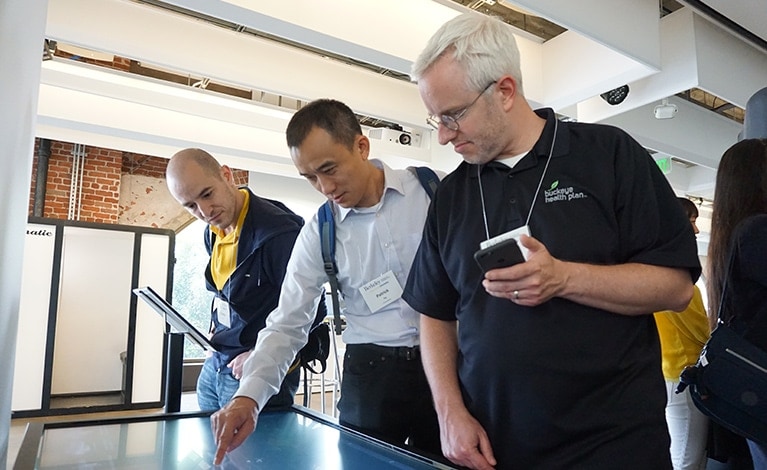
The Online Learning Experience
The online master’s in data science combines advanced technology and in-person experiences to ensure you benefit from the full I School experience.
All of the online tools you need to succeed are hosted in one place: the virtual campus.
Access your weekly Zoom classes , where you will engage in meaningful discussions.
Complete coding work through seamless GitHub integration in the virtual campus.
View upcoming course work and deadlines with one click on your dashboard.
Attend class or complete course work from anywhere using the mobile app.
In-Person Immersion
Further your connections with your classmates and professors at an in-person immersion experience. Here, you will participate in workshops, network with industry leaders, and learn about emerging trends in the information field.
Learn more about the full student experience.
Valuable Relationships with MIDS Alumni
MIDS graduates are working around the world to solve social, economic, and health problems and applying their skills at top companies such as Amazon, Apple, Facebook, Microsoft, and Google. Students and alumni can connect with the I School community through the I School Slack workspace, the official I School professional networking platform.
Graduates employed at these companies excel in roles such as:
- Business data analyst
- Data analyst
- Data architect
- Data engineer
- Data scientist
- Solutions architect
- Systems engineer
“Visiting Uber was an amazing experience. After a 40-minute presentation, we spent over an hour asking questions to Kevin Novak (leader of the data science division) on everything from data science at Uber, to data science at small startups, to the evolving place of data science in the world.”
– Christopher Llop, MIDS graduate
“I rely heavily on the knowledge and confidence that I gained from the MIDS curriculum as I approach open-ended data science problems. My professors at UC Berkeley provided me with a strong basis in structured problem solving and critical thinking as a data scientist.”
– Erin Boehmer, data scientist at Fenix International
Learn more about how MIDS graduates have used these career connections to reach their career goals.
Choose a Program That Transforms Students into Data Science Leaders
Earn a master’s in data science online from UC Berkeley.
The master’s in data science program is seeking applicants who can make a positive impact on the I School community and beyond. A complete application must include the following:
- Online application
- Transcripts from all educational institutions attended
- Statement of Purpose and additional admissions statements
- Two professional letters of recommendation
- Current resume
- Application fee
- Optional: GRE or GMAT scores
- TOEFL scores (if applicable)
Learn more about admissions requirements.
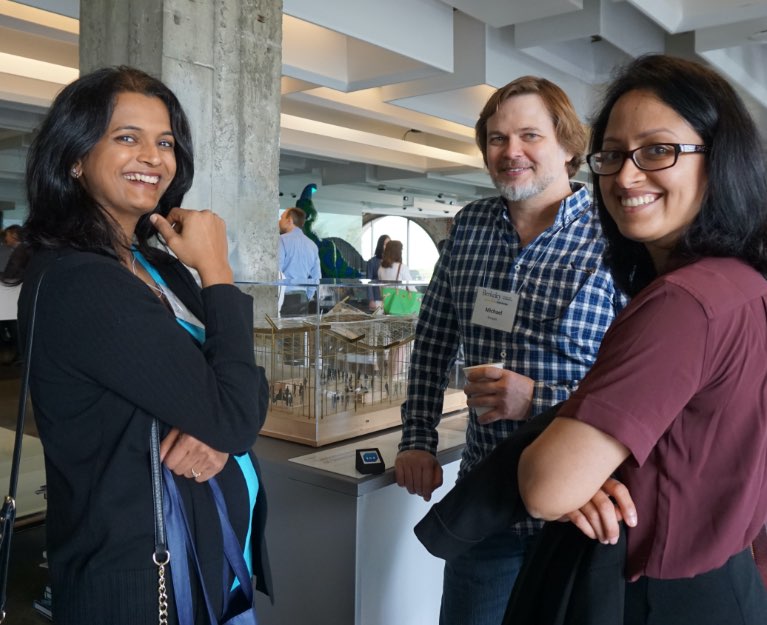
Application Deadlines
There are three program start dates throughout the year, and applications are reviewed on a rolling basis. The final deadline for the January 2025 cohort is September 25, 2024 .
Review Application Deadlines
Upcoming Events
Learn more about the MIDS program and meet I School faculty and students during our online and in-person events.
Attend an Upcoming Event
Develop the Skills Needed to Become a Data Science Leader at Top Organizations
Earn a Master of Information and Data Science online from UC Berkeley.
- Best Online Master’s in Data Science Programs, Fortune , Ranked in August 2024. ↩︎
- Computer and Information Research Scientists, Bureau of Labor Statistics. Accessed February 2022. ↩︎
- Best Online Master’s in Data Science Programs , Fortune , Ranked in August 2024. ↩︎
Return to footnote reference
CS Faculty List

Pieter Abbeel
Professor 746 Sutardja Dai Hall, (510) 642-7034; [email protected] Research Interests: Artificial Intelligence (AI) ; Control, Intelligent Systems, and Robotics (CIR) Education: 2008, Ph.D., Computer Science, Stanford University; 2000, M.S., Electrical Engineering, KU Leuven, Belgium Office Hours: arrange via email Teaching Schedule (Fall 2024): CS 188. Introduction to Artificial Intelligence , TuTh 15:30-16:59, Dwinelle 155

Below The Line Assistant Professor [email protected] Education: 2020, PhD, EECS, UCLA

Krste Asanović
Professor Emeritus, Professor in the Graduate School 579B Soda Hall, 510-642-6506; [email protected] Research Interests: Computer Architecture & Engineering (ARC) ; Integrated Circuits (INC) ; Operating Systems & Networking (OSNT) ; Design, Modeling and Analysis (DMA) Education: 1998, PhD, Computer Science, UC Berkeley; 1987, BA, Electrical and Information Sciences, University of Cambridge, UK Office Hours: Email for appt Assistants: Tammy Johnson, 565 Soda, 643-4816, [email protected]; Ria Melendres Briggs, 563 Soda, (510) 643-1455, [email protected]

Babak Ayazifar
Teaching Professor 517 Cory Hall, 510-642-9945; [email protected] Research Interests: Education (EDUC) ; Signal Processing (SP) Education: 2003, Ph.D., Electrical Engineering and Computer Science, Massachusetts Institute of Technology; 1989, B.S., Electrical Engineering, Caltech Teaching Schedule (Fall 2024): EECS 16A. Designing Information Devices and Systems I , MoWe 18:30-19:59, Pimentel 1

Ruzena Bajcsy
Professor Emerita 719 Sutardja Dai Hall, 510-642-9423; [email protected] Research Interests: Artificial Intelligence (AI) ; Biosystems & Computational Biology (BIO) ; Control, Intelligent Systems, and Robotics (CIR) ; Graphics (GR) ; Human-Computer Interaction (HCI) ; Security (SEC) Education: 1972, Ph.D., Computer Science, Stanford University; 1968, Ph.D., Electrical Engineering, Slovak Technical University, Bratislava, Slovak Republic; 1957, M.S., Electrical Engineering, Slovak Technical University, Bratislava, Slovak Republic Office Hours: M W 9-10, 719 Sutardja Dai

Michael Ball
Lecturer 784 Soda Hall; [email protected] Research Interests: Education (EDUC) ; Human-Computer Interaction (HCI) Education: 2016, MS, Computer Science, UC Berkeley; 2015, BA, Computer Science, UC Berkeley Office Hours: By appointment, please email me., 784 Soda Teaching Schedule (Fall 2024): CS 169A. Introduction to Software Engineering , MoWe 17:00-18:29, Genetics & Plant Bio 100

David Bamman
Below The Line Associate Professor [email protected] Education: 2015, Ph.D., Computer Science (Language Technologies Institute), Carnegie Mellon University; 2006, M.A., Applied Linguistics, Boston University; 1998, B.A., Classics, University of Wisconsin-Madison

Brian A. Barsky
Professor Emeritus, Professor in the Graduate School 443 Soda Hall; [email protected] Research Interests: Graphics (GR) ; Biosystems & Computational Biology (BIO) ; Human-Computer Interaction (HCI) ; Signal Processing (SP) Education: 1981, Ph.D., Computer Science, University of Utah, Salt Lake City; 1978, M.S., Computer Graphics/Computer Science, Cornell University; 1976, B.Sc., Mathematics/Computer Science, McGill University; 1973, D.C.S., Engineering, McGill University Office Hours: By email appointment only

Peter Bartlett
Professor Emeritus 723 Sutardja Dai Hall, 510-642-7780; [email protected] Research Interests: Artificial Intelligence (AI) ; Control, Intelligent Systems, and Robotics (CIR) Education: 1992, Ph.D., Electrical Engineering, University of Queensland, Australia

Alexandre Bayen
Professor [email protected] Research Interests: Control, Intelligent Systems, and Robotics (CIR) ; Artificial Intelligence (AI) ; Cyber-Physical Systems and Design Automation (CPSDA) Education: 2003, Ph.D., Aeronautics and Astronautics, Stanford University; 1999, M.S., Aeronautics and Astronautics, Stanford University; 1998, Engineering, Applied Mathematics, Ecole Polytechnique, France
Manuel Blum
Professor Emeritus 621 Soda Hall; [email protected] Education: 1964, Ph.D., Mathematics, MIT; 1961, M.S., Electrical Engineering, MIT; 1959, B.S., Electrical Engineering, MIT

Christian Borgs
Professor 8060 Berkeley Way West; [email protected] Research Interests: Artificial Intelligence (AI) ; Theory (THY) Education: 1987, PhD, Mathematical Physics, Max-Planck-Institute and Universitat Munchen

Eric Brewer
Professor Emeritus 417 Sutardja Dai Hall, 510-642-8143; [email protected] Research Interests: Operating Systems & Networking (OSNT) ; Power and Energy (ENE) ; Security (SEC) Education: 1994, Ph.D., EECS, MIT; 1989, B.S., EECS, UC Berkeley Office Hours: M 2:30-3:30, Th 1-2, 623 Soda

Aydin Buluç
Adjunct Assistant Professor [email protected] Research Interests: Scientific Computing (SCI) ; Programming Systems (PS) ; Biosystems & Computational Biology (BIO) ; Computer Architecture & Engineering (ARC) Education: 2010, Ph.D., Computer Science, University of California, Santa Barbara

John F. Canny
Professor 637 Soda Hall, 510-642-9955; [email protected] Research Interests: Artificial Intelligence (AI) ; Control, Intelligent Systems, and Robotics (CIR) ; Graphics (GR) ; Human-Computer Interaction (HCI) ; Security (SEC) Education: 1987, Ph.D., Electrical Engineering, MIT; 1983, M.S., Electrical Engineering, MIT; 1980, B.E. (Hons), Electrical Engineering, Adelaide University; 1979, B.Sc., Computer Science and Theoretical Physics, Adelaide University
Serina Chang
Acting Assistant Professor [email protected] Research Interests: Artificial Intelligence (AI) Education: 2024, Ph.D., Computer Science, Stanford

Sarah Chasins
Assistant Professor Research Interests: Programming Systems (PS) ; Human-Computer Interaction (HCI) Education: 2019, Ph.D., Computer Science, University of California, Berkeley; 2012, B.A., Computer Science, Psychology, Swarthmore College

Jennifer Chayes
Professor, Dean [email protected] Research Interests: Information, Data, Network, and Communication Sciences (IDNCS) ; Theory (THY) ; Biosystems & Computational Biology (BIO) Education: 1983, PhD, Mathematical Physics, Princeton University; 1979, BA, Biology and Physics, Wesleyan University

Below The Line Assistant Professor 120D Warren Hall; [email protected] Research Interests: Artificial Intelligence (AI) ; Biosystems & Computational Biology (BIO) Education: 2022, PhD, Electrical Engineering and Computer Science, MIT; 2014, AB/SM, Applied Math, Harvard

Alvin Cheung
Associate Professor 785 Soda Hall; [email protected] Research Interests: Database Management Systems (DBMS) ; Programming Systems (PS) Education: 2015, Ph.D., Computer Science, MIT Teaching Schedule (Fall 2024): CS 186. Introduction to Database Systems , MoWe 10:00-11:29, Soda 306

Alessandro Chiesa
Adjunct Associate Professor 683 Soda Hall; [email protected] Research Interests: Security (SEC) ; Theory (THY) Education: 2014, Ph.D., Computer Science, MIT; 2010, M.Eng., Computer Science, MIT; 2009, B.S., Computer Science and Mathematics, MIT

Michael J. Clancy
Teaching Professor Emeritus 784 Soda Hall, 510-642-7017; [email protected] Research Interests: Education (EDUC) Education: 1971, B.S., Mathematics, University of Illinois, Champaign/Urbana Office Hours: by appointment, 784 Soda

Phillip Colella
Professor in Residence Emeritus MS50A-1148 Lawrence Berkeley National Laboratory, 486-5412; [email protected]

Natacha Crooks
Assistant Professor [email protected] Research Interests: Database Management Systems (DBMS) ; Operating Systems & Networking (OSNT) Education: 2019, Ph.D., Distributed Systems, University of Texas; 2012, BA, Computer Science and Law, University of Cambridge

David E. Culler
Professor Emeritus 783 Soda Hall; [email protected] Research Interests: Computer Architecture & Engineering (ARC) ; Power and Energy (ENE) ; Operating Systems & Networking (OSNT) ; Cyber-Physical Systems and Design Automation (CPSDA) ; Programming Systems (PS) ; Security (SEC) Education: 1989, Ph.D., MIT; 1985, M.S., MIT; 1980, B.A., U.C. Berkeley

Trevor Darrell
Professor in Residence 8010 Berkeley Way West; [email protected] Research Interests: Artificial Intelligence (AI) ; Control, Intelligent Systems, and Robotics (CIR) Education: 1996, PhD, MAS, MIT; 1988, BSE, CS, U.Penn. Teaching Schedule (Fall 2024): CS 294-43. Large Scale Vision and Language Models , Mo 13:00-14:59,

James Demmel
Professor 564 Soda Hall, 510-643-5386; [email protected] Research Interests: Computer Architecture & Engineering (ARC) ; Scientific Computing (SCI) Education: 1983, Ph.D., Computer Science, UC Berkeley; 1975, B.S., Mathematics, Caltech Office Hours: Wed, 8:30 - 9:30 am, 564 Soda Assistants: Tammy Johnson, 565 Soda, 643-4816, [email protected]

John DeNero
Associate Teaching Professor [email protected] Research Interests: Artificial Intelligence (AI) ; Education (EDUC) Education: 2010, Ph.D., Computer Science, University of California, Berkeley; 2002, M.A., Philosophy, Stanford University; 2001, B.S., Mathematical & Computational Science and Symbolic Systems, Stanford University Office Hours: See Homepage, 781 Soda Teaching Schedule (Fall 2024): CS 47A. Completion of Work in Computer Science 61A CS 61A. The Structure and Interpretation of Computer Programs , MoWeFr 13:00-13:59, Wheeler 150

Anca Dragan
Associate Professor Research Interests: Artificial Intelligence (AI) ; Control, Intelligent Systems, and Robotics (CIR) ; Human-Computer Interaction (HCI) Education: 2015, PhD, Robotics, Carnegie Mellon University; 2009, B.S., Computer Science, Jacobs University, Bremen

Prabal Dutta
Professor 550C Cory Hall; [email protected] Research Interests: Computer Architecture & Engineering (ARC) ; Cyber-Physical Systems and Design Automation (CPSDA) ; Power and Energy (ENE) ; Operating Systems & Networking (OSNT) Education: 2009, PhD, Computer Science, University of California, Berkeley; 1997, B.S., Electrical and Computer Engineering, Ohio State University Assistants: Sarah Gaugler, [email protected] Teaching Schedule (Fall 2024): CS C249A. Introduction to Embedded Systems , TuTh 14:00-15:29, Soda 306 EECS 149. Introduction to Embedded and Cyber Physical Systems , TuTh 14:00-15:29, Soda 306 EE C249A. Introduction to Embedded Systems , TuTh 14:00-15:29, Soda 306 EE 375. Teaching Techniques for Electrical Engineering

Alexei (Alyosha) Efros
Professor 724 Sutardja Dai Hall; [email protected] Research Interests: Artificial Intelligence (AI) ; Graphics (GR) Education: 2003, PhD, Computer Science, UC Berkeley; 1997, BS, Computer Science, University of Utah Teaching Schedule (Fall 2024): CS 180. Intro to Computer Vision and Computational Photography , MoWe 17:00-18:29, Li Ka Shing 245 CS 280A. Intro to Computer Vision and Computational Photography , MoWe 17:00-18:29, Li Ka Shing 245

Laurent El Ghaoui
Professor Emeritus 421 Sutardja Dai Hall; [email protected] Research Interests: Control, Intelligent Systems, and Robotics (CIR) Education: 1990, Ph.D., Aeronautics and Astronautics, Stanford; 1985, B.S., Mathematics, Ecole Polytechnique Office Hours: Wed., 9:00-10:00am, 421 Sutardja Dai

Professor 203A South Hall; [email protected] Research Interests: Graphics (GR) Education: 1997, PhD, Computer Science, University of Pennsylvania

Richard J. Fateman
Professor Emeritus 441 Soda Hall, 510-847-2368; [email protected] Research Interests: Artificial Intelligence (AI) ; Scientific Computing (SCI) Office Hours: BY APPT, 441 Soda

Jerome A. Feldman
Professor Emeritus 739 Soda Hall, 510-666-2900; [email protected] Research Interests: Artificial Intelligence (AI) ; Biosystems & Computational Biology (BIO) ; Security (SEC) Education: 1964, Ph.D., Computer Science and Mathematics, Carnegie Mellon University; 1961, M.S., Mathematics, University of Pittsburgh; 1960, B.S., Physics, University of Rochester

Domenico Ferrari
Professor Emeritus

Christopher Fletcher
Associate Professor [email protected] Research Interests: Computer Architecture & Engineering (ARC) Education: 2016, Ph.D., EECS, MIT; 2013, S.M., EECS, MIT; 2010, B.S., EECS, UC Berkeley Teaching Schedule (Fall 2024): EECS 151. Introduction to Digital Design and Integrated Circuits , TuTh 09:30-10:59, Mulford 159 EECS 151LA. Application Specific Integrated Circuits Laboratory , Mo 17:00-19:59, Cory 111 EECS 151LA-2. Application Specific Integrated Circuits Laboratory , Th 14:00-16:59, Cory 111 EECS 151LA-3. Application Specific Integrated Circuits Laboratory , Fr 11:00-13:59, Cory 111 EECS 151LA-4. Application Specific Integrated Circuits Laboratory , Mo 11:00-13:59, Cory 111 EECS 151LA-5. Application Specific Integrated Circuits Laboratory , Fr 17:00-19:59, Cory 111 EECS 151LB. Field-Programmable Gate Array Laboratory , Tu 14:00-16:59, Cory 111 EECS 151LB-2. Field-Programmable Gate Array Laboratory , We 17:00-19:59, Cory 111 EECS 151LB-3. Field-Programmable Gate Array Laboratory , Fr 08:00-10:59, Cory 111 EECS 151LB-4. Field-Programmable Gate Array Laboratory , Tu 17:00-19:59, Cory 111 EECS 151LB-5. Field-Programmable Gate Array Laboratory , Th 17:00-19:59, Cory 111 EECS 251A. Introduction to Digital Design and Integrated Circuits , TuTh 09:30-10:59, Mulford 159 EECS 251LA-101. Introduction to Digital Design and Integrated Circuits Lab , Mo 17:00-19:59, Cory 111 EECS 251LA-102. Introduction to Digital Design and Integrated Circuits Lab , Th 14:00-16:59, Cory 111 EECS 251LA-103. Introduction to Digital Design and Integrated Circuits Lab , Fr 11:00-13:59, Cory 111 EECS 251LA-104. Introduction to Digital Design and Integrated Circuits Lab , Mo 11:00-13:59, Cory 111 EECS 251LA-105. Introduction to Digital Design and Integrated Circuits Lab , Fr 17:00-19:59, Cory 111 EECS 251LB-101. Introduction to Digital Design and Integrated Circuits Lab , Tu 14:00-16:59, Cory 111 EECS 251LB-102. Introduction to Digital Design and Integrated Circuits Lab , We 17:00-19:59, Cory 111 EECS 251LB-103. Introduction to Digital Design and Integrated Circuits Lab , Fr 08:00-10:59, Cory 111 EECS 251LB-105. Introduction to Digital Design and Integrated Circuits Lab , Th 17:00-19:59, Cory 111

Armando Fox
Professor 581 Soda Hall, 510-642-6820; [email protected] Research Interests: Programming Systems (PS) ; Education (EDUC) ; Human-Computer Interaction (HCI) Assistants: Tammy Johnson, 565 Soda, 643-4816, [email protected] Teaching Schedule (Fall 2024): CS 194-244. STAR Assessments for Proficiency-Based Learning , Mo 14:00-15:29, Soda 606 CS 294-244. STAR Assessments for Proficiency-Based Learning , Mo 14:00-15:29, Soda 606 CS 375. Teaching Techniques for Computer Science , Fr 10:00-11:59, Soda 438

Jack Gallant
Below the Line, Professor [email protected] Research Interests: Biosystems & Computational Biology (BIO) Education: 1995, Post-doc, Systems & Computational Neuroscience, Caltech & Wash Univ. Med. Schl.; 1988, PhD, Experimental Psychology, Yale University

Teaching Professor 777 Soda Hall, 510-517-4041; [email protected] Research Interests: Education (EDUC) ; Graphics (GR) Education: 2000, Ph.D., Computer Science, UC Berkeley; 1995, M.S., Computer Science, UC Berkeley; 1990, B.S., Computer Science, MIT; 1990, B.S., Electrical Engineering, MIT Office Hours: CS10: F 1-2pm, 777 Soda; CS61C: F 2-3pm, 777 Soda Teaching Schedule (Fall 2024): CS 10. The Beauty and Joy of Computing , MoWe 13:00-13:59, Hearst Field Annex A1 CS 47C. Completion of Work in Computer Science 61C CS 61C. Great Ideas of Computer Architecture (Machine Structures) , MoWeFr 10:00-10:59, Dwinelle 155 CS 194-244. STAR Assessments for Proficiency-Based Learning , Mo 14:00-15:29, Soda 606 CS 198-2. Directed Group Studies for Advanced Undergraduates , MoWeFr 11:00-11:59, Soda 606 CS 294-244. STAR Assessments for Proficiency-Based Learning , Mo 14:00-15:29, Soda 606

Sanjam Garg
Associate Professor 685 Soda Hall; [email protected] Research Interests: Theory (THY) ; Security (SEC) Education: 2013, Ph.D., Computer Science, University of California, Los Angeles; 2008, B.Tech, Computer Science and Engineering, Indian Institute of Technology, Delhi Office Hours: See Homepage Teaching Schedule (Fall 2024): CS 170. Efficient Algorithms and Intractable Problems , TuTh 14:00-15:29, Valley Life Sciences 2050 CS 276. Cryptography , TuTh 11:00-12:29, Soda 405

Adjunct Assistant Professor [email protected] Research Interests: Database Management Systems (DBMS) ; Operating Systems & Networking (OSNT) Education: 2006, PhD, Computer Science, KTH/Royal Institute of Technology; 2002, MBA, Logistics and Marketing, Mid-Sweden University; 2002, MSc, Computer Engineering, Mid-Sweden University

Ken Goldberg
Professor 425 Sutardja Dai Hall, 510-643-9565; [email protected] Research Interests: Artificial Intelligence (AI) ; Control, Intelligent Systems, and Robotics (CIR) ; Human-Computer Interaction (HCI) Education: 1990, PhD, Computer Science, Carnegie Mellon University; 1984, BSEE, Electrical Engineering, University of Pennsylvania; 1984, BSE, Economics, UPenn - Wharton Office Hours: see personal homepage

Shafi Goldwasser
Professor 689 Soda Hall; Research Interests: Theory (THY) Education: 1984, Ph.D., Computer Science, UC Berkeley; 1981, M.S., Computer Science, UC Berkeley; 1979, B.S., Mathematics and Science, Carnegie Mellon

Joseph Gonzalez
Associate Professor 773 Soda Hall; [email protected] Research Interests: Artificial Intelligence (AI) ; Database Management Systems (DBMS) ; Operating Systems & Networking (OSNT) Education: 2012, Ph.D., Machine Learning, Carnegie Mellon University Assistants: Ivan Ortega, 465A Soda Soda, (510) 708-8604, [email protected] Teaching Schedule (Fall 2024): CS 294-162. Machine Learning Systems , MoWe 10:30-11:59, Soda 310

Susan L. Graham
Professor Emerita 751 Soda Hall, 510-642-2059; [email protected] Research Interests: Graphics (GR) ; Human-Computer Interaction (HCI) ; Programming Systems (PS) ; Scientific Computing (SCI) Office Hours: by appointment, 751 Soda

Venkatesan Guruswami
Professor [email protected] Research Interests: Theory (THY) ; Information, Data, Network, and Communication Sciences (IDNCS) Education: 2001, PhD, Computer Science, MIT

Nika Haghtalab
Assistant Professor 8028 Berkeley Way West; [email protected] Research Interests: Artificial Intelligence (AI) ; Theory (THY) Education: 2018, Ph.D., Computer Science, Carnegie Mellon University

Moritz Hardt
Adjunct Associate Professor [email protected] Education: 2011, PhD, Computer Science, Princeton University

Michael A. Harrison
Professor Emeritus [email protected] Research Interests: Programming Systems (PS) ; Theory (THY) Education: 1963, Ph.D., Communication Sciences, University of Michigan; 1959, M.S., Electrical Engineering and Computing, Case Western Reserve University; 1958, B.S., Electrical Engineering, Case Western Reserve University

Björn Hartmann
Associate Professor 220A Jacobs Hall, 415 868 5720; [email protected] Research Interests: Human-Computer Interaction (HCI) ; Programming Systems (PS) ; Cyber-Physical Systems and Design Automation (CPSDA) ; Graphics (GR) Education: 2009, Ph.D., Computer Science, Stanford University; 2002, MSE, Computer and Information Science, University of Pennsylvania; 2001, BSE/B.A., Digital Media Design/Communication, University of Pennsylvania Office Hours: Fall'19: Thu 5-6pm, 220A Jacobs Teaching Schedule (Fall 2024): CS 260B. Human-Computer Interaction Research , TuTh 12:30-13:59, Moffitt Library 102

Brian Harvey
Teaching Professor Emeritus 441 Soda Hall; [email protected] Research Interests: Education (EDUC) Education: 1990, MA, Clinical Psychology, New College of California; 1985, PhD, Science & Mathematics Education, UC Berkeley; 1975, MS, Computer Science, Stanford; 1969, BS, Mathematics, MIT Office Hours: by appointment, 441 Soda

Marti Hearst
Professor 307b South Hall, 510-642-8016; [email protected] Research Interests: Human-Computer Interaction (HCI) ; Artificial Intelligence (AI) Education: 1994, Ph.D., Computer Science, UC Berkeley; 1989, M.S., Computer Science, UC Berkeley; 1985, B.A., Computer Science, UC Berkeley Office Hours: See home page, 307B South

Joseph M. Hellerstein
Professor Emeritus, Professor in the Graduate School 789 Soda Hall, 510-643-4011; Research Interests: Database Management Systems (DBMS) ; Operating Systems & Networking (OSNT) Education: 1995, Ph.D., Computer Science, University of Wisconsin-Madison; 1992, MS, Computer Science, UC Berkeley; 1990, AB, Computer Science, Harvard University Teaching Schedule (Fall 2024): CS 298-12. Database Seminar , We 11:00-11:59, Soda 438

Paul N. Hilfinger
Teaching Professor, Retired 787 Soda Hall, 510-642-8401; [email protected] Research Interests: Programming Systems (PS) ; Scientific Computing (SCI) Education: 1980, Ph.D., Computer Science, Carnegie-Mellon University; 1973, AB, Mathematics, Princeton University

Associate Teaching Professor 779 Soda Hall; [email protected] Research Interests: Education (EDUC) Education: 2011, Ph.D., Electrical Engineering And Computer Science, UC Berkeley; 2003, B.S., Electrical and Computer Engineering, University of Texas at Austin Office Hours: No office hours, on sabbatical Teaching Schedule (Fall 2024): CS 70. Discrete Mathematics and Probability Theory , TuTh 17:00-18:29, Pimentel 1

Christopher Hunn
Lecturer [email protected] Teaching Schedule (Fall 2024): CS 365. Introduction to Instructional Methods in Computer Science for Academic Interns , Fr 12:00-13:59, Soda 438 CS 370. Adaptive Instruction Methods in Computer Science , Tu 17:00-18:59, Wheeler 212 CS 370-2. Adaptive Instruction Methods in Computer Science , Th 17:00-18:59, Wheeler 212

Nilah Ioannidis
Assistant Professor 513 Soda Hall; [email protected] Research Interests: Biosystems & Computational Biology (BIO) ; Artificial Intelligence (AI) Education: 2013, Ph.D., Biophysics, Harvard University Teaching Schedule (Fall 2024): CS 194-172. Computational Methods in Genomics & Medicine , Mo 15:00-17:59, Moffitt Library 102 CS 294-172. Computational Methods in Genomics & Medicine , Mo 15:00-17:59, Moffitt Library 102

Lakshya Jain
Lecturer [email protected] Education: 2020, M.S., Computer Science, University of California, Berkeley

Jiantao Jiao
Assistant Professor 257M Cory Hall; Research Interests: Artificial Intelligence (AI) ; Information, Data, Network, and Communication Sciences (IDNCS) ; Control, Intelligent Systems, and Robotics (CIR) ; Theory (THY) ; Signal Processing (SP) ; Operating Systems & Networking (OSNT) ; Database Management Systems (DBMS) ; Cyber-Physical Systems and Design Automation (CPSDA) ; Security (SEC) ; Power and Energy (ENE) ; Programming Systems (PS) Education: 2018, Ph.D., Electrical Engineering, Stanford University Assistants: Kim Kail, 253 Cory, 510-643-6633, [email protected] Teaching Schedule (Fall 2024): EECS 126. Probability and Random Processes , TuTh 11:00-12:29, Valley Life Sciences 2040


Michael Jordan
Professor Emeritus, Professor in the Graduate School 387 Soda Hall; [email protected] Research Interests: Artificial Intelligence (AI) ; Biosystems & Computational Biology (BIO) ; Control, Intelligent Systems, and Robotics (CIR) ; Signal Processing (SP) ; Theory (THY) Education: 1985, Ph.D., Cognitive Science, UC San Diego; 1980, M.S., Mathematics, Arizona State University; 1978, B.S., Psychology, Louisiana State University Office Hours: by appointment

Anthony D. Joseph
Professor 465 Soda Hall, 510-643-7212; [email protected] Research Interests: Operating Systems & Networking (OSNT) ; Security (SEC) Education: 1998, Ph.D., Computer Science, MIT; 1988, S.M./S.B., Electrical Engineering and Computer Science/Computer Science and Engineering, MIT Office Hours: By appointment only - please email for appointment Assistants: Ivan Ortega, 465A Soda Soda, (510) 708-8604, [email protected]

William M. Kahan
Professor Emeritus 513 Soda Hall, 510-642-5638; [email protected] Research Interests: Computer Architecture & Engineering (ARC) ; Scientific Computing (SCI) Education: 1958, Ph.D., Mathematics, University of Toronto; 1956, Master's, Mathematics, University of Toronto; 1954, B.A., Mathematics, University of Toronto Office Hours: Irregular- phone for app't

Angjoo Kanazawa
Assistant Professor 8014 Berkeley Way West; [email protected] Research Interests: Artificial Intelligence (AI) ; Graphics (GR) Education: 2017, Ph.D., Computer Science, University of Maryland, College Park
Lecturer [email protected] Education: 2022, M.S., Electrical Engineering and Computer Science, UC Berkeley; 2021, B.A., Computer Science, UC Berkeley; 2021, B.A., Data Science, UC Berkeley Teaching Schedule (Fall 2024): CS 47B-2. Completion of Work in Computer Science 61B CS 47C. Completion of Work in Computer Science 61C CS 61B. Data Structures , MoWeFr 14:00-14:59, Wheeler 150 CS 61C. Great Ideas of Computer Architecture (Machine Structures) , MoWeFr 10:00-10:59, Dwinelle 155 CS 168. Introduction to the Internet: Architecture and Protocols , TuTh 11:00-12:29, HAAS Faculty Wing F295

Richard M. Karp
Professor Emeritus 621 Soda Hall, 510-642-5799; [email protected] Research Interests: Biosystems & Computational Biology (BIO) ; Operating Systems & Networking (OSNT) ; Theory (THY) Education: 1959, Ph.D., Applied Mathematics, Harvard; 1956, S.M., Applied Mathematics, Harvard; 1955, A.B., Mathematics, Harvard Office Hours: M 1:30-2:30, 621 Soda Assistants: Olivia Chen, 695 Soda, (510) 642-9467, [email protected]

Randy H. Katz
Professor Emeritus 751 Soda Hall, 510-642-8778; [email protected] Research Interests: Computer Architecture & Engineering (ARC) ; Operating Systems & Networking (OSNT) Education: 1980, PhD, Computer Science, UC Berkeley; 1978, MS, Computer Science, UC Berkeley; 1976, AB, Computer Science & Math, Cornell University Office Hours: By appointment. Contact [email protected] Assistants: Ivan Ortega, 465A Soda Soda, (510) 708-8604, [email protected]

Kurt Keutzer
Professor Emeritus, Professor in the Graduate School [email protected] Research Interests: Artificial Intelligence (AI) ; Computer Architecture & Engineering (ARC) ; Scientific Computing (SCI) Education: 1984, PhD, Computer Science, Indiana University Office Hours: by appointment only Assistants: Roxana Infante, 563 Soda, 643-1455, [email protected]

Daniel Klein
Professor 8058 Berkeley Way West, 510-643-0805; [email protected] Research Interests: Artificial Intelligence (AI) Education: 2004, M.S./Ph.D., Computer Science, Stanford University; 1999, M.St, Linguistics, Oxford University; 1998, B.A., Math, CS, Linguistics, Cornell University Office Hours: Tuesday 2pm-3:30pm (may be in 778 SDH), 730 Sutardja Dai Teaching Schedule (Fall 2024): CS 288. Natural Language Processing , TuTh 12:30-13:59, Wurster 102
Aditi Krishnapriyan
Below The Line Assistant Professor [email protected] Research Interests: Artificial Intelligence (AI) ; Scientific Computing (SCI) Education: 2020, Ph.D., ㅤ, Stanford University

John D. Kubiatowicz
Professor 673 Soda Hall, 510-643-6817; [email protected] Research Interests: Operating Systems & Networking (OSNT) ; Security (SEC) Education: 1998, Ph.D., Electrical Engineering and Computer Science (minor in Physics), M.I.T.; 1993, M.S., Electrical Engineering and Computer Science, M.I.T.; 1987, B.S., EE and Physics, M.I.T. Office Hours: T/Th 3pm-4pm, 673 Soda

Edward A. Lee
Professor Emeritus, Professor in the Graduate School [email protected] Research Interests: Cyber-Physical Systems and Design Automation (CPSDA) ; Programming Systems (PS) ; Signal Processing (SP) ; Computer Architecture & Engineering (ARC) ; Information, Data, Network, and Communication Sciences (IDNCS) ; Design, Modeling and Analysis (DMA) Education: 1986, PhD, EECS, UC Berkeley; 1981, SM, EECS, MIT; 1979, BS, CS and Eng. & Applied Science, Yale Office Hours: By appointment, 545Q Cory

Sergey Levine
Associate Professor 8056 Berkeley Way West; Research Interests: Artificial Intelligence (AI) ; Control, Intelligent Systems, and Robotics (CIR) Education: 2014, Ph.D., Computer Science, Stanford University; 2009, B.S/M.S., Computer Science, Stanford University

Jennifer Listgarten
Professor 8022 Berkeley Way West; Research Interests: Biosystems & Computational Biology (BIO) ; Artificial Intelligence (AI) Education: 2007, Ph.D., Computer Science, University of Toronto Teaching Schedule (Fall 2024): CS 189. Introduction to Machine Learning , TuTh 14:00-15:29, HAAS Faculty Wing F295 CS 289A. Introduction to Machine Learning , TuTh 14:00-15:29, HAAS Faculty Wing F295

Michael Lustig
Professor 506 Cory Hall; [email protected] Education: 2008, PhD, EE, Stanford University; 2004, MSc, EE, Stanford University; 2001, BSc, EE, 🇮🇱💔 Technion, Israel Institute of Technology Office Hours: 🇮🇱🇮🇱 Bring those kidnapped by Hammas home! 💔💔

Jitendra Malik
Professor 8012 Berkeley Way West; 389 Soda Hall; [email protected] Research Interests: Artificial Intelligence (AI) ; Control, Intelligent Systems, and Robotics (CIR) ; Signal Processing (SP) Education: 1985, Ph.D., Computer Science, Stanford University; 1980, B.Tech, Electrical Engineering, Indian Institute of Technology, Kanpur Office Hours: By appointment only, 722 Sutardja Dai Assistants: Angie Abbatecola, 741 Soda, (510) 643-6413, [email protected]; Alex Sandoval, 510 642-0253, [email protected] Teaching Schedule (Fall 2024): CS 294-277. Robots That Learn , Mo 15:00-16:59, Berkeley Way West 1203
Acting Assistant Professor [email protected] Research Interests: Artificial Intelligence (AI) Education: 2024, Ph.D., Computer Science & Engineering, University of Washington; 2018, B.S., Computer Science & Engineering, Seoul National University
Igor Mordatch
Lecturer [email protected] Research Interests: Artificial Intelligence (AI) Education: 2016, Post-Doctoral Associate, EECS, UC Berkeley; 2015, PhD, Computer Science & Engineering, University of Washington Teaching Schedule (Fall 2024): CS 188. Introduction to Artificial Intelligence , TuTh 15:30-16:59, Dwinelle 155

Jelani Nelson
Professor, CS Division Chair 633 Soda Hall; [email protected] Research Interests: Theory (THY) ; Database Management Systems (DBMS) Education: 2011, Ph.D., Computer Science, MIT; 2006, M.Eng., Computer Science, MIT; 2005, S.B., Computer Science, Mathematics, MIT Assistants: Alex Sandoval, 510 642-0253, [email protected] Teaching Schedule (Fall 2024): CS 298-3. EECS Colloquium , We 16:00-16:59, Soda 306

Associate Professor 8062 Berkeley Way West; [email protected] Research Interests: Graphics (GR) ; Signal Processing (SP) ; Artificial Intelligence (AI) Education: 2006, Ph.D., Computer Science, Stanford University; 2006, M.S., Computer Science, Stanford University; 2001, B.S., Mathematical and Computational Science, Stanford University Office Hours: Thursday 1 - 2pm or by appointment Teaching Schedule (Fall 2024): CS 194-164. Computational Human Vision , Tu 13:00-15:59, Berkeley Way West 1217 CS 294-164. Computational Human Vision , Tu 13:00-15:59, Berkeley Way West 1217

Narges Norouzi
Assistant Teaching Professor 775 Soda Hall; [email protected] Research Interests: Artificial Intelligence (AI) ; Education (EDUC) ; Biosystems & Computational Biology (BIO) Education: 2017, PhD, Computer Engineering, University of Toronto; 2014, MS, Computer Engineering, University of Toronto; 2012, BS, Computer Engineering, Sharif University of Technology Teaching Schedule (Fall 2024): CS 194-244. STAR Assessments for Proficiency-Based Learning , Mo 14:00-15:29, Soda 606 CS 194-271. Research in AI Education , Tu 14:00-15:29, Soda 606 CS 294-244. STAR Assessments for Proficiency-Based Learning , Mo 14:00-15:29, Soda 606 CS 294-271. Research in AI Education , Tu 14:00-15:29, Soda 606

James O'Brien
Professor [email protected] Research Interests: Graphics (GR) ; Artificial Intelligence (AI) ; Human-Computer Interaction (HCI) ; Scientific Computing (SCI) Education: 2000, Ph.D., Computer Science, Georgia Institute of Technology; 1997, M.S., Computer Science, Georgia Institute of Technology; 1992, B.S., Computer Science, Florida International University

Christos Papadimitriou
Professor Emeritus [email protected] Research Interests: Biosystems & Computational Biology (BIO) ; Theory (THY) Assistants: Olivia Chen, 695 Soda, (510) 642-9467, [email protected]

Aditya Parameswaran
Associate Professor 212 South Hall; [email protected] Research Interests: Database Management Systems (DBMS) ; Human-Computer Interaction (HCI) Education: 2013, PhD, Computer Science, Stanford; 2007, BTech, Computer Science and Engineering, IIT Bombay Office Hours: by appointment Teaching Schedule (Fall 2024): CS 298-12. Database Seminar , We 11:00-11:59, Soda 438

Lecturer [email protected] Education: 2015, Bachelors of Arts, Computer Science, University of California, Berkeley

Beresford N. Parlett
Professor Emeritus 799 Evans Hall;

David A. Patterson
Professor Emeritus 579 Soda Hall, 642-6587; [email protected] Research Interests: Computer Architecture & Engineering (ARC) ; Operating Systems & Networking (OSNT) Education: 1976, PhD, Computer Science, UCLA; 1970, MS, Computer Science, UCLA; 1969, AB, Mathematics, UCLA Office Hours: Mondays, by appointment, 579 Soda Assistants: Ivan Ortega, 465A Soda Soda, (510) 708-8604, [email protected]

Eric Paulos
Professor [email protected] Research Interests: Human-Computer Interaction (HCI) Office Hours: See Homepage www.paulos.net
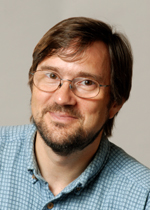
Vern Paxson
Professor Emeritus, Professor in the Graduate School 737 Soda Hall, 3-4209; 630 International Computer Science Institute, 666-2882; [email protected] Research Interests: Security (SEC) ; Operating Systems & Networking (OSNT) Office Hours: By appointment via Zoom
Emma Pierson
Assistant Professor [email protected] Research Interests: Artificial Intelligence (AI) Education: 2020, Ph.D., Computer Science, Stanford University

Kristofer Pister
Professor 512 Cory Hall; [email protected] Research Interests: Micro/Nano Electro Mechanical Systems (MEMS) ; Control, Intelligent Systems, and Robotics (CIR) ; Integrated Circuits (INC) Education: 1992, Ph.D., EECS, UC Berkeley; 1989, M.S., EECS, UC Berkeley; 1986, B.A., Applied Physics, UC San Diego Office Hours: W 11-12, Th 4:30-5:30, 512 Cory

Raluca Ada Popa
Associate Professor 729 Soda Hall; [email protected] Research Interests: Operating Systems & Networking (OSNT) ; Security (SEC) Education: 2014, Doctor of Philosophy, Computer Science, Massachusetts Institute of Technology; 2010, Masters of Engineering, Computer Science, Massachusetts Institute of Technology; 2009, Bachelor's degree, Computer Science and Mathematics, Massachusetts Institute of Technology Office Hours: Tuesday 2-3pm, 729 Soda Assistants: Ivan Ortega, 465A Soda Soda, (510) 708-8604, [email protected]

Prasad Raghavendra
Professor 623 Soda Hall; [email protected] Research Interests: Theory (THY) Education: 2009, PhD, Computer Science and Engineering, University of Washington, Seattle; 2007, M.S., Computer Science and Engineering, University of Washington, Seattle; 2005, B.S., Computer Science, Indian Institute of Technology , Madras, India Office Hours: Wed 11-noon, 623 Soda Teaching Schedule (Fall 2024): CS 170. Efficient Algorithms and Intractable Problems , TuTh 14:00-15:29, Valley Life Sciences 2050 CS 298-2. Theory Seminar , We 12:00-13:29, Soda 438

Kannan Ramchandran
Professor 269 Cory Hall, 510-642-2353; [email protected] Research Interests: Information, Data, Network, and Communication Sciences (IDNCS) ; Signal Processing (SP) ; Artificial Intelligence (AI) ; Control, Intelligent Systems, and Robotics (CIR) Education: 1993, Ph.D., Computer Science, Columbia University; 1984, M.S., Computer Science, Columbia University; 1982, B.E., Computer Science, City College of New York Office Hours: Tu. 3:00-4:00, or by appt., 258 Cory Assistants: Kim Kail, 253 Cory, 510-643-6633, [email protected] Teaching Schedule (Fall 2024): EE 120. Signals and Systems , MoWe 15:00-16:59, Valley Life Sciences 2060

Professor 687 Soda Hall, 510-642-4328; [email protected] Research Interests: Biosystems & Computational Biology (BIO) ; Theory (THY) Assistants: Olivia Chen, 695 Soda, (510) 642-9467, [email protected] Teaching Schedule (Fall 2024): CS 70. Discrete Mathematics and Probability Theory , TuTh 17:00-18:29, Pimentel 1 CS 270. Combinatorial Algorithms and Data Structures , TuTh 11:00-12:29, Soda 306

Sylvia Ratnasamy
Professor 413 Soda Hall, 2-8905; [email protected] Research Interests: Operating Systems & Networking (OSNT) Assistants: Carlyn Chinen, 510-990-5109, [email protected]; Ivan Ortega, 465A Soda Soda, (510) 708-8604, [email protected] Teaching Schedule (Fall 2024): CS 168. Introduction to the Internet: Architecture and Protocols , TuTh 11:00-12:29, HAAS Faculty Wing F295

Benjamin Recht
Professor 8008 Berkeley Way West; [email protected] Research Interests: Artificial Intelligence (AI) ; Control, Intelligent Systems, and Robotics (CIR) ; Signal Processing (SP) Teaching Schedule (Fall 2024): EE 227BT. Convex Optimization , TuTh 14:00-15:29, Anthro/Art Practice Bldg 155

Lawrence A. Rowe
Professor Emeritus [email protected] Education: 1976, Ph.D., Information and Computer Science, University of California, Irvine; 1970, B.A., Mathematics, University of California, Irvine

Jaijeet Roychowdhury
Professor 545E Cory Hall, 643-5664; [email protected] Research Interests: Cyber-Physical Systems and Design Automation (CPSDA) ; Integrated Circuits (INC) ; Information, Data, Network, and Communication Sciences (IDNCS) ; Computer Architecture & Engineering (ARC) ; Control, Intelligent Systems, and Robotics (CIR) ; Artificial Intelligence (AI) Education: 1993, PhD, EECS, Berkeley; 1989, MS, EECS, Berkeley; 1987, B.Tech., EE, IIT Kanpur Teaching Schedule (Fall 2024): EE 290-7. Oscillator Ising Machines: Special Topics , We 10:00-12:59,

Stuart J. Russell
Professor 8040 Berkeley Way West; [email protected] Research Interests: Artificial Intelligence (AI) ; Control, Intelligent Systems, and Robotics (CIR) ; Biosystems & Computational Biology (BIO) Education: 1986, PhD, Computer Science, Stanford University; 1982, BA Hons (1st class), Physics, Oxford University

Anant Sahai
Professor 267 Cory Hall; [email protected] Research Interests: Information, Data, Network, and Communication Sciences (IDNCS) ; Artificial Intelligence (AI) ; Control, Intelligent Systems, and Robotics (CIR) ; Theory (THY) ; Signal Processing (SP) Education: 2001, PhD, EECS, Massachusetts Institute of Technology; 1996, SM, EECS, Massachusetts Institute of Technology; 1994, BS, EECS, University of California, Berkeley Office Hours: (by appointment), 267 Cory
Niloufar Salehi
Below The Line Assistant Professor 313 South Hall; [email protected] Research Interests: Human-Computer Interaction (HCI) Education: 2019, Ph.D., Computer Science, Stanford University

Saeed Saremi
Lecturer [email protected] Education: 2009, Ph. D., Theoretical Physics, Cambridge; 2003, Masters, Physics, Brown University; 2001, Bachelors of Science, Physics, Sharif University of Technology Teaching Schedule (Fall 2024): CS 189. Introduction to Machine Learning , TuTh 14:00-15:29, HAAS Faculty Wing F295 CS 289A. Introduction to Machine Learning , TuTh 14:00-15:29, HAAS Faculty Wing F295

Koushik Sen
Professor 735 Soda Hall, 510-642-2420; [email protected] Research Interests: Programming Systems (PS) ; Security (SEC) Office Hours: Fridays 2pm-3pm, 735 Soda Assistants: Tammy Johnson, 565 Soda, 643-4816, [email protected] Teaching Schedule (Fall 2024): CS 164. Programming Languages and Compilers , MoWe 14:00-15:29, Soda 306

Carlo H. Séquin
Professor Emeritus 639 Soda Hall, 510-642-5103; [email protected] Research Interests: Graphics (GR) ; Human-Computer Interaction (HCI) Education: 1969, Ph.D., Experimental Physics, University of Basel, Switzerland Office Hours: see homepage for currently valid time slots, 639 Soda

Sanjit A. Seshia
Professor 566 Cory Hall, 510-643-6968; [email protected] Research Interests: Cyber-Physical Systems and Design Automation (CPSDA) ; Programming Systems (PS) ; Artificial Intelligence (AI) ; Control, Intelligent Systems, and Robotics (CIR) ; Security (SEC) ; Theory (THY) Education: 2005, Ph.D., Computer Science, Carnegie Mellon University; 2000, M.S., Computer Science, Carnegie Mellon University; 1998, B.Tech., Computer Science, Institute of Technology, Bombay Office Hours: TuTh 3:30-4 PM and by appointment, 566 Cory Assistants: Charlotte Jones, 550 Sutardja Dai, 510-664-4203, [email protected] Teaching Schedule (Fall 2024): CS C249A. Introduction to Embedded Systems , TuTh 14:00-15:29, Soda 306 EECS 149. Introduction to Embedded and Cyber Physical Systems , TuTh 14:00-15:29, Soda 306 EE C249A. Introduction to Embedded Systems , TuTh 14:00-15:29, Soda 306

Sophia Shao
Associate Professor 570 Cory Hall; [email protected] Research Interests: Computer Architecture & Engineering (ARC) ; Integrated Circuits (INC) ; Cyber-Physical Systems and Design Automation (CPSDA) Education: 2016, Ph.D., Computer Science, Harvard University

Scott Shenker
Professor Emeritus, Professor in the Graduate School 415 Soda Hall, 510-643-3043; [email protected] Research Interests: Operating Systems & Networking (OSNT) Education: 1983, Ph.D., Physics, University of Chicago; 1978, Sc.B., Physics, Brown University Assistants: Ivan Ortega, 465A Soda Soda, (510) 708-8604, [email protected]

Jonathan Shewchuk
Professor 529 Soda Hall, 510-642-3936; [email protected] Research Interests: Scientific Computing (SCI) ; Theory (THY) ; Graphics (GR)

Alistair Sinclair
Professor 677 Soda Hall, 510-643-8144; [email protected] Research Interests: Theory (THY) Office Hours: M 1:30-2:30, Tu 12:45-1:45, 677 Soda Assistants: Olivia Chen, 695 Soda, (510) 642-9467, [email protected] Teaching Schedule (Fall 2024): CS 271. Randomness and Computation , TuTh 09:30-10:59, Soda 310

Alan J. Smith
Professor Emeritus 192 Soda Hall, 510-642-5290; [email protected] Research Interests: Computer Architecture & Engineering (ARC) ; Operating Systems & Networking (OSNT) Office Hours: by appointment only - send email or call, 192 Soda

Professor 675 Soda Hall, 510-642-8282; [email protected] Research Interests: Artificial Intelligence (AI) ; Operating Systems & Networking (OSNT) ; Security (SEC) ; Programming Systems (PS) Education: 2002, Ph.D., Computer Science, UC Berkeley; 1999, M.S., Computer Science, Carnegie Mellon University Teaching Schedule (Fall 2024): CS 194-177. Special Topics on Decentralized Finance , Mo 10:00-11:59, Joan and Sanford I. Weill 101D CS 194-196. Special Topics on Decentralized Intelligence: Large Language Model Agents , Mo 15:00-16:59, Latimer 120 CS 294-177. Special Topics on Decentralized Finance , Mo 10:00-11:59, Joan and Sanford I. Weill 101D CS 294-196. Special Topics on Decentralized Intelligence: Large Language Model Agents , Mo 15:00-16:59, Latimer 120

Yun S. Song
Professor 304B Stanley Hall, 510-642-2351; [email protected] Research Interests: Biosystems & Computational Biology (BIO) ; Artificial Intelligence (AI) ; Theory (THY) Education: 2001, PhD, Physics, Stanford University; 1997, B.S., Mathematics, MIT; 1996, B.S., Physics, MIT Office Hours: TuTh 5-6pm, 304B Stanley

Costas J. Spanos
Professor Emeritus 510 Cory Hall, 510-643-6776; Research Interests: Power and Energy (ENE) ; Integrated Circuits (INC) ; Physical Electronics (PHY)

Jacob Steinhardt
Assistant Professor 8026 Berkeley Way West; [email protected] Research Interests: Artificial Intelligence (AI) ; Information, Data, Network, and Communication Sciences (IDNCS) Education: 2018, PhD, Computer Science, Stanford; 2012, BSc, Mathematics, MIT

Professor 481-2 Soda Hall, 510-643-4007; [email protected] Research Interests: Operating Systems & Networking (OSNT) ; Security (SEC) Education: 2000, Ph.D., Electrical and Computer Engineering, Carnegie Mellon University; 1989, M.S., Computer Science and Control Engineering, Polytechnic University Bucharest Office Hours: Monday 11-12 PM, Location TBD Assistants: Kattt Atchley, 465 Soda, 510-643-3499, [email protected]; Ivan Ortega, 465A Soda Soda, (510) 708-8604, [email protected] Teaching Schedule (Fall 2024): CS 162. Operating Systems and System Programming , TuTh 18:30-19:59, Dwinelle 155 CS 294-162. Machine Learning Systems , MoWe 10:30-11:59, Soda 310
Michael Stonebraker
Professor Emeritus Education: 1971, Ph.D., Computer, Information and Control Engineering, University of Michigan; 1966, M.S.E., Electrical Engineering, University of Michigan; 1965, B.S.E., Electrical Engineering, Princeton

Jonathan Stray
Lecturer [email protected] Research Interests: Artificial Intelligence (AI) Education: 2010, Masters Degree, Journalism, University of Hong Kong; 2000, Masters Degree, Computer Science, University of Toronto; 1998, Bachelors of Science, Computer Science, University of Toronto Teaching Schedule (Fall 2024): CS 294-273. Designing Algorithmic Media , We 14:00-15:59, Haviland 12

Bernd Sturmfels
Professor Emeritus 925 Evans Hall, 510-642 6550; [email protected] Research Interests: Biosystems & Computational Biology (BIO) ; Theory (THY) Education: 1987, Dr.rer.nat., Mathematics, Technical University Darmstadt, Germany; 1987, Ph.D., Mathematics, University of Washington, Seattle; 1985, Diplom, Mathematics and Computer Science, Technical University Darmstadt, Germany Office Hours: T 9:45-11am, F 10:30-11:30am, 925 Evans

Assistant Professor 8052 Berkeley Way West; [email protected] Research Interests: Artificial Intelligence (AI) Education: 2022, PhD, Computer Science, Cornell University; 2016, BS, Computer Science and Engineering, Ohio State University Teaching Schedule (Fall 2024): CS 288. Natural Language Processing , TuTh 12:30-13:59, Wurster 102

Avishay Tal
Assistant Professor 635 Soda Hall; [email protected] Research Interests: Theory (THY) Education: 2015, PhD, Computer Science, Weizmann Institute of Science; 2012, MS, Computer Science, The Technion, Haifa, Israel; 2007, BA, Mathematics, The Technion, Haifa, Israel; 2005, BS, Software Engineering, The Technion, Haifa, Israel Teaching Schedule (Fall 2024): CS 172. Computability and Complexity , TuTh 17:00-18:29, Lewis 9 CS 298-2. Theory Seminar , We 12:00-13:29, Soda 438

Claire Tomlin
Professor, Chair 721 Sutardja Dai Hall, 510-643-6610; [email protected] Research Interests: Control, Intelligent Systems, and Robotics (CIR) ; Biosystems & Computational Biology (BIO) Education: 1998, Ph.D., EECS, UC Berkeley; 1993, M.Sc., Electrical Engineering, Imperial College, London; 1992, B.A.Sc., Electrical Engineering, University of Waterloo Office Hours: By Appointment, 721 Sutardja Dai Assistants: Jessica Gamble, 337 Cory, 510-643-5105, [email protected]; Alex Sandoval, 510 642-0253, [email protected]

Umesh Vazirani
Professor 671 Soda Hall, 510-642-0572; [email protected] Research Interests: Theory (THY) ; Security (SEC) Education: 1986, Ph.D., Computer Science, UC Berkeley; 1981, B.S., MIT Assistants: Olivia Chen, 695 Soda, (510) 642-9467, [email protected]

Allon Wagner
Assistant Professor 304A Stanley Hall; [email protected] Research Interests: Biosystems & Computational Biology (BIO) Education: 2021, PhD, Computer Science, UC Berkeley

David A. Wagner
Professor 733 Soda Hall, 510-642-2758; [email protected] Research Interests: Security (SEC) Education: 2000, Ph.D., Computer Science, UC Berkeley; 1999, M.S., Computer Science, UC Berkeley; 1995, A.B., Mathematics, Princeton University Office Hours: Tuesdays, Thursdays 11am-noon, 733 Soda Teaching Schedule (Fall 2024): CS 161. Computer Security , TuTh 09:30-10:59, Hearst Field Annex A1

Martin Wainwright
Professor 263 Cory Hall, 510-643-1978; [email protected] Research Interests: Artificial Intelligence (AI) ; Control, Intelligent Systems, and Robotics (CIR) ; Information, Data, Network, and Communication Sciences (IDNCS) ; Signal Processing (SP) ; Theory (THY) Office Hours: by appointment Assistants: Kim Kail, 253 Cory, 510-643-6633, [email protected]

Laura Waller
Professor 514 Cory Hall, (510) 642-2753; [email protected] Research Interests: Physical Electronics (PHY) ; Signal Processing (SP) ; Biosystems & Computational Biology (BIO) ; Graphics (GR) Education: 2010, Ph.D., Electrical Engineering and Computer Science, MIT; 2005, M.Eng., Electrical Engineering and Computer Science, MIT; 2004, B.S., Electrical Engineering and Computer Science, MIT Office Hours: Tuesday and Thursdays 11:00-11:30am, 514 Cory Teaching Schedule (Fall 2024): EE 290-5. Computational Imaging , TuTh 15:30-16:59, Cory 521

Jean Walrand
Professor Emeritus 257 Cory Hall, 510-219-5821; [email protected] Research Interests: Information, Data, Network, and Communication Sciences (IDNCS)

John Wawrzynek
Professor 631 Soda Hall, 510-643-9434; [email protected] Research Interests: Computer Architecture & Engineering (ARC) ; Design, Modeling and Analysis (DMA) Office Hours: Tues., 1:00-2:00pm and by appointment, 631 Soda

Max Willsey
Assistant Professor 725 Soda Hall; [email protected] Research Interests: Programming Systems (PS) Education: 2021, PhD, Computer Science, University of Washington Teaching Schedule (Fall 2024): CS 265. Compiler Optimization and Code Generation , TuTh 14:00-15:29, Soda 405

John Wright
Assistant Professor [email protected] Research Interests: Theory (THY) Education: 2016, Ph.D., Computer Science, Carnegie Mellon University Teaching Schedule (Fall 2024): CS 294-261. Learning Problems in Quantum Computing , MoWe 10:30-11:59, Soda 405

Below The Line Assistant Professor [email protected] Research Interests: Artificial Intelligence (AI) Education: 2022, PhD, Computer Science, MIT

Assistant Teaching Professor 783 Soda Hall; [email protected] Research Interests: Education (EDUC) Education: 2019, PhD, Electrical Engineering, Stanford University; 2015, MS, Electrical Engineering, Stanford University; 2013, BS, Electrical Engineering and Computer Science, University of California, Berkeley Office Hours: Th 11:15am-12:30pm (Tea Hours, CS 195), 783 Soda; F 10-11am (Data 101), 111 Warren Teaching Schedule (Fall 2024): CS 195. Social Implications of Computer Technology , Tu 15:30-16:59, Physics Building 1 CS H195. Honors Social Implications of Computer Technology , Tu 15:30-16:59, Physics Building 1

Katherine A. Yelick
Professor 50A Lawrence Berkeley National Laboratory, 510-495-2431; [email protected] Research Interests: Programming Systems (PS) ; Scientific Computing (SCI) ; Biosystems & Computational Biology (BIO) Education: 1991, Ph.D., EECS, MIT; 1985, S.M., EECS, MIT; 1982, B.S., EECS, MIT Assistants: Tammy Johnson, 565 Soda, 643-4816, [email protected]
Justin Yokota
Lecturer [email protected] Education: 2022, M.S., Computer Science, UC Berkeley; 2021, B.A., Computer Science, Mathematic, UC Berkeley Teaching Schedule (Fall 2024): CS 47B-2. Completion of Work in Computer Science 61B CS 61B. Data Structures , MoWeFr 14:00-14:59, Wheeler 150 CS 365. Introduction to Instructional Methods in Computer Science for Academic Interns , Fr 12:00-13:59, Soda 438

Adjunct Associate Professor 629 Soda Hall; [email protected] Research Interests: Biosystems & Computational Biology (BIO)

Professor 367 Evans Hall, 510-642-2021; [email protected] Research Interests: Signal Processing (SP) Education: 1990, Ph.D., Statistics, University of California, Berkeley; 1987, M.A., Statistics, University of California, Berkeley; 1984, B.S., Mathematics, Peking University

Adjunct Professor [email protected] Research Interests: Artificial Intelligence (AI) ; Control, Intelligent Systems, and Robotics (CIR) ; Graphics (GR) ; Signal Processing (SP) Education: 2003, Ph.D., Robotics, Carnegie Mellon University

Matei Zaharia
Associate Professor [email protected] Research Interests: Operating Systems & Networking (OSNT) ; Artificial Intelligence (AI) ; Database Management Systems (DBMS) Education: 2013, PhD, Computer Science, UC Berkeley Teaching Schedule (Fall 2024): CS 294-162. Machine Learning Systems , MoWe 10:30-11:59, Soda 310
This campus directory is the property of the University of California, Berkeley. To protect the privacy of individuals listed herein, in accordance with the State of California Information Practices Act, this directory may not be used, rented, distributed, or sold for commercial purposes.
Send requests for updates to eecsfac-updates@eecs , or Login to make changes yourself.
- UC Berkeley
- Sign Up to Volunteer
- I School Slack
- Alumni News
- Alumni Events
- Alumni Accounts
- Career Support
- Academic Mission
- Diversity & Inclusion Resources
- DEIBJ Leadership
- Featured Faculty
- Featured Alumni
- Work at the I School
- Subscribe to Email Announcements
- Logos & Style Guide
- Directions & Parking
The School of Information is UC Berkeley’s newest professional school. Located in the center of campus, the I School is a graduate research and education community committed to expanding access to information and to improving its usability, reliability, and credibility while preserving security and privacy.
- Career Outcomes
- Degree Requirements
- Paths Through the MIMS Degree
- Final Project
- Funding Your Education
- Admissions Events
- Request Information
- Capstone Project
- Jack Larson Data for Good Fellowship
- Tuition & Fees
- Women in MIDS
- MIDS Curriculum News
- MICS Student News
- Dissertations
- Applied Data Science Certificate
- ICTD Certificate
- Cybersecurity Clinic
The School of Information offers four degrees:
The Master of Information Management and Systems (MIMS) program educates information professionals to provide leadership for an information-driven world.
The Master of Information and Data Science (MIDS) is an online degree preparing data science professionals to solve real-world problems. The 5th Year MIDS program is a streamlined path to a MIDS degree for Cal undergraduates.
The Master of Information and Cybersecurity (MICS) is an online degree preparing cybersecurity leaders for complex cybersecurity challenges.
Our Ph.D. in Information Science is a research program for next-generation scholars of the information age.
- Fall 2024 Course Schedule
The School of Information's courses bridge the disciplines of information and computer science, design, social sciences, management, law, and policy. We welcome interest in our graduate-level Information classes from current UC Berkeley graduate and undergraduate students and community members. More information about signing up for classes.
- Ladder & Adjunct Faculty
- MIMS Students
- MIDS Students
- 5th Year MIDS Students
- MICS Students
- Ph.D. Students

- Publications
- Centers & Labs
- Computer-mediated Communication
- Data Science
- Entrepreneurship
- Human-computer Interaction (HCI)
- Information Economics
- Information Organization
- Information Policy
- Information Retrieval & Search
- Information Visualization
- Social & Cultural Studies
- Technology for Developing Regions
- User Experience Research
Research by faculty members and doctoral students keeps the I School on the vanguard of contemporary information needs and solutions.
The I School is also home to several active centers and labs, including the Center for Long-Term Cybersecurity (CLTC) , the Center for Technology, Society & Policy , and the BioSENSE Lab .
- Why Hire I School?
- Request a Resume Book
- For Nonprofit and Government Employers
- Leadership Development Program
- Mailing List
- Jobscan & Applicant Tracking Systems
- Resume & LinkedIn Review
I School graduate students and alumni have expertise in data science, user experience design & research, product management, engineering, information policy, cybersecurity, and more — learn more about hiring I School students and alumni .
- Press Coverage
- I School Voices

- Distinguished Lecture Series
- I School Lectures
- Information Access Seminars
- CLTC Events
- Women in MIDS Events

Master of Information and Data Science
Master’s in data science online from uc berkeley.
The number 1–ranked Master of Information and Data Science (MIDS) program,* delivered online, prepares students to be leaders in the data science field.
The online master’s program brings UC Berkeley to students, wherever they are. The WASC-accredited program blends a multidisciplinary curriculum, experienced faculty from UC Berkeley and top data-driven companies, an accomplished network of peers, and the flexibility of online learning.
Request more info
Complete a Rigorous, Holistic Curriculum
The multidisciplinary online data science master’s curriculum draws upon computer science, social sciences, statistics, management, and law. Students use the latest tools and analytical methods to work with data at scale, derive insights from complex and unstructured data, and solve real-world problems.
The core curriculum focuses on the following key skills:
- Research design
- Data cleansing
- Data engineering
- Data mining and exploring
- Data visualization
- Information ethics and privacy
- Statistical analysis
- Machine learning
Experiential, project-based learning is a hallmark of the MIDS program. Students work collaboratively with the latest tools, environments, and processes on real-world data science problems, so they are prepared to work as leaders in the industry.
Online Learning Experience
The online master’s in data science combines advanced technology and in-person experiences to ensure you benefit from the full UC Berkeley School of Information (I School) experience.
Find all of the online tools you need to succeed in one place: the virtual campus.
- Access your weekly Zoom classes, where you will engage in meaningful discussions.
- Complete coding work through seamless GitHub integration in the virtual campus.
- View upcoming course work and deadlines with one click on your dashboard.
- Attend class or complete course work from anywhere.
Online Data Science Program Paths
The 27-unit online program is designed for the working professional and can be completed at a flexible pace.
- The standard path is designed for working professionals to complete part-time and can be completed in 20 months, with two courses per semester.
- The accelerated path gives students the opportunity to take three courses per semester to complete the program in only 12 months.
- The decelerated path allows students to drop down to one course per semester after the first term and complete the program in no more than 32 months.
Learn more about about upcoming webinars, deadlines, and more
Featured courses.
The MIDS curriculum features a wide range of courses that provide students with a comprehensive understanding of how data science can be used to inform decision-making in their organizations. Students will complete programming-focused courses, like the featured courses below, in concurrence with courses that focus on the ethical impact of data science and how to effectively communicate results.
Applied Machine Learning
Students will learn how to apply crucial machine learning techniques to solve problems, run evaluations and interpret results, and understand scaling up from thousands of data points to billions.
Behind the Data: Humans and Values
This course examines the legal, policy, and ethical issues that arise throughout the full life cycle of data science. Students use case studies to explore these issues across various domains, such as criminal justice, national security, health, marketing, politics, education, and employment.
Natural Language Processing with Deep Learning
This course is a broad introduction to linguistic phenomena and our attempts to analyze them with machine learning. The course covers a wide range of concepts, with a focus on practical applications such as information extraction, machine translation, sentiment analysis, and summarization.
Admissions Requirements
The master’s in data science program is seeking applicants who can make a positive impact on the I School community and beyond. A complete application must include the following:
- Online application
- Official transcripts
- Statement of Purpose and additional admissions statements
- Two professional letters of recommendation
- Current resume
- Application fee
- TOEFL scores (if applicable)
- GRE or GMAT scores are optional.
* Best Online Master’s in Data Science Programs for 2024 (2024). Fortune Education . Retrieved September 10, 2024.
10 Most Affordable PhD in Computer Science Programs Online 2024
Find your perfect school.

Author: Josh Davidson / Reviewed by: Melissa Anderson / First covered: February 2019 / Updates: 2
Key Takeaways:
- The #1 school in our ranking of the low-cost online PhD in computer science programs is Dakota State University, followed by the University of Utah.
- A doctorate in computer science can open up various advanced career opportunities in academia, research, and industry.
- Identify specific areas of interest within computer science (e.g., artificial intelligence, cybersecurity, data science, software engineering ). Look for programs and faculty members whose research aligns with your interests.
- Research the institution’s reputation. and look for programs with strong research output, resources, and connections in your field of interest.
- Check for funding opportunities, including scholarships, assistantships, and grants. Many PhD programs offer stipends, tuition waivers, or research grants.

Pursuing an affordable online PhD in computer science opens up exciting possibilities. According to the U.S. Census Bureau’s “Educational Attainment in the United States 2017” report, less than 3% of Americans have a doctorate.
Featured Programs
Obtaining your Ph.D. can elevate you to the top of your field. If you want to be a cut above the rest, have opportunities in the newest technologies, and use your expert abilities to grow and work in the field you love, completing a Ph.D. in computer science online is right for you.
There are many areas of specialty in the computer sciences. One of the newest trends is artificial intelligence. With a doctorate in CS, there is an opportunity to work in this field to ensure the safest and most reliable research and development. If you desire to teach computer science at the college level, obtaining this Ph.D. is often required, and you can get a job in almost any technological school.
With an online doctorate of CS, you will be researching the most advanced topics in the field. Many US Ph.D. in computer science degrees are taken online due to the independence it allows working professionals.
The programs are comparable to the courses taken at a brick-and-mortar college, and you leave with a Ph.D. from the college providing online learning.
Degrees Included in This Ranking:
Online Ph.D. in Information Systems
Ph.d. in computer science online, online doctor of philosophy (ph.d.) in technology.
- Online Computer and Information Science Ph.D
- Online Electrical and Computer Engineering PhD
- Ph.D. Online in Computer Science and Engineering
- Online Ph.D. in Information Technology
Ranking the 10 Most Affordable Online Computer Science PhD Programs
This list comprises the 10 Most Affordable Ph.D. in Computer Science Programs Online. Colleges are listed by tuition. Tuition numbers were taken from the NCES College Navigator tool. Only universities with a PhD in Computer Science with an online option were considered. Consider the following online PhD programs in computer science:
Note: This ranking was originally published in February 2019 and was last updated in September 2023. The 2023 updates may affect the ranking order, but the list has not been re-ordered.
#10 University of South Carolina
Columbia, sc.
Tuition : $13,374
The College of Engineering and Computing was established in 1961 and offers many degrees in many different technological facets. Graduates can have careers in many sectors. Some go on to be entrepreneurs, others work in cyber-security, while others work with artificial intelligence, and the list goes on.
Many of the projects and research performed in this Ph.D. course are supported by government agencies or are collaborative efforts with local industries. The University of South Carolina is one of the top 25 graduate programs according to national publications such as US News and World Report.
- Top-ranked university
- Robust tech support for online learners
- Affordable tuition
- Less reputable computer science department
- Less diverse student body
#9 University of Rhode Island
Kingston, ri.
Tuition : $14,822
URI’s Ph.D. in computer science department serves undergraduates and postgraduates, including PhDs. The Ph.D. in computer science online is a research degree that provides the opportunity to complete a major research project that enhances the field of computer science. Their curriculum provides the expertise needed for a career in research-based innovation.
Graduate courses are offered at convenient times for professionals. Students in the Ph.D. program typically conduct a major research project with one of the university’s research groups to produce new intellectual contributions to the computer science field.
- Highly ranked graduate programs in computer science
- Scheduling flexibility
- 24/7 tech support for distance learners
#8 University of California, Berkeley
Online phd computer science, berkeley, ca.
Tuition : $11,700
The University of California was founded in 1868. It has an impressive list of academic achievements and rankings. In the new rankings, Berkeley’s graduate programs placed first in the world, according to US News and World Report, including their Ph.D. program in computer science.
Berkeley graduates have gone on to achieve high endeavors, such as 20 Nobel Prizes, 30 recipients of the National Medal of Science and over 250 founders of companies. Graduate students represent 92 countries and all 50 states.
Berkeley’s EECS graduate programs have been ranked first and second in the US for excellence.
Berkeley’s graduates are highly satisfied with their education and, as a result, rank very high on the rating scale:
- 90% overall (and 85% of those who pursued non-academic careers) say they were well prepared for their careers by Berkeley
- 95% overall (and 93% of those who pursued non-academic careers) would pursue a doctoral degree again
- 86% would select the same field of study
- 95% would choose graduate study at Berkeley if they could start again
- High student satisfaction rates
- Top-ranked graduation programs
- Prestigious university
- More competitive
#7 Capitol Technical University
Tuition : $11,340
Capitol Technology University is a STEM-focused institution of higher education providing undergraduate and graduate degrees in engineering, information sciences, and technology leadership. CTU’s degrees offer flexibility with opportunities to grow and adapt to emerging workforce needs.
Capitol Technical University has three Ph.D. programs focusing on technology. Cybersecurity (DSc), technology Ph.D., and a technology combination program MS/Ph.D. (a unique program that offers a combination of a Ph.D. in technology and a master of science in research methods.)
Graduates will be positioned to contribute significantly to their fields by creating new knowledge and ideas. They’ll learn a skill set that will give them the tools to easily research and publish findings and present them in an accurate and professional manner.
Students work with Capitol Technical University first, then work independently on a research topic of publishable quality. They will gain knowledge in legal, political ethics, and social aspects of their field. Some of CTU’s graduates are employed at government agencies and large corporations. Others have started their own tech companies.
Out of hundreds of top-notch employers, a few standouts are the Department of Defense, Honeywell, and Lockheed Martin.
- Dual degree programs available
- Flexible curriculum
- Lower graduation rate
- Less prestigious university
#6 Indiana University Bloomington
Bloomington, in.
Tuition : $10,033
Maybe you immediately think of Hoosiers and basketball when you hear Indiana University. Along with that notoriety, Indiana University boasts of many other diverse achievements.
Crest toothpaste was developed by three IU researchers. Olympic gold medalist Mark Spitz came from IU, as did Nobel prize winners Mark Cuban (American businessman and owner of the Mavericks basketball team), a dozen pro-sports players, and actors and actresses like Oscar-winning actor Steve Tesich.
This University has a computer department that is very competitive with other universities. Indiana University has a world-class faculty with expertise in foundations such as algorithms, programming languages, parallel and distributed systems, cloud computing, networks, hardware, data mining, machine learning, intelligent systems, and security.
The cross-disciplinary approach exposes you not only to the latest research in high-performance computing, data and search, artificial intelligence, and computer security but also gives you the opportunity to apply those insights to real-world problems, from controlling pandemic disease to tracking the effects of climate change on polar ice.
- Affordability
- High graduation rate
- Less diverse
#5 National University
San diego, ca.
Tuition : $15,912
Northcentral University’s Ph.D. in technology and innovation management, specializing in computer science, is a 100% online program. Its specialization in teaching how a computer functions from the inside out, giving the inside track to understand the foundational technology in any information system fully.
The NCU Ph.D. program students are mentored by PhDs who are specialists in the field because they are 100% doctoral faculty. Students also receive practical experience by being in the online classroom with exposure to the research community and, in turn, receive chances to present at conferences and seminars.
This is one of the most flexible universities we reviewed, offering weekly course starts, no scheduled lecture hours, no group assignments, weekly assignments, and the ability to schedule courses around a student’s personal and professional obligations. There is no requirement to start at the beginning of a semester.
North Central University does not require students to be on campus at all. This makes it easy for working professionals, as well as for military personnel and international students who will not have to relocate. North Central’s programs provide students with the opportunity to partner with a member of their 100% doctoral faculty in each of the courses.
During the online Ph.D. in the computer science program, the student focuses their research on contributing new knowledge and theory to the body of knowledge in their field. North Central University offers two programs in computer science. They have an applied doctorate program where the student will focus their research on the practical application of knowledge and theory that already exists within their field.
If a student is considering continuing their work in their field of choice by implementing their research in the field, the applied doctorate might be the right choice. If the student plans to contribute to their field through research and analysis, the Ph.D. program seems like the right choice.
- Top-ranked graduate programs in information technology
- 100% doctoral faculty
- More diverse
#4 Mississippi State University
Mississippi state, ms.
Website Tuition: $9,398
Mississippi State ranks among the top 50 best colleges in the South in Money Magazine’s “Best Colleges for Your Money” 2017 listing.
MSU is among the top 9 schools in the U.S. to hold all three of the National Security Agency’s Centers of Academic Excellence awards. They are working closely with Pacific Northwest National Laboratory, and their researchers are using big-data analytics and high-performance computing to solve some of the nation’s top cybersecurity problems.
Fixed on defeating the full spectrum of cyber attacks, Mississippi State’s National Science Foundation CyberCorps program is the 3rd largest in the country. The Department of Computer Science and Engineering has a strong presence in computing.
The Miss. State Ph.D. specializes in research in traditional areas of computer science, cross-specialty areas, and interdisciplinary projects.
Recent graduates hold jobs at places like:
- Microsoft Research
- Palo Alto Research Center
- Verari Systems Software
- Fairmont State University
- Jackson State University
- Mississippi Valley State University
- Nova Southeastern University
- Tennessee Tech University
- Smaller class sizes
- Limited tech support
#3 Aspen University
Denver, colorado.
Website Tuition: $3,900
Aspen’s Doctor of Science in Computer Science offers a responsibly priced distance Ph.D. in computer science. The program builds an understanding of theoretical concepts and practical applications of computer science in the context of advanced research and analysis methods relating to computer architecture and software design.
Aspen also offers a special series of courses designed to aid them in developing, researching, and writing the doctoral dissertation.
Aspen offers tuition rates low enough that most of their students can afford to pay their tuition in cash or through a monthly payment plan, enabling their students to gain a financially responsible Ph.D.
- Highly affordable
- More diverse student body
- Less prestigious computer science programs
#2 University of Utah
Salt lake city, utah.
Websi t e Tuition: $7,353
Dozens of University of Utah’s academic programs, including computer science, rank in the top 100 by U.S. News & World Report. About 50 students a year enter the Ph.D. program at the University of Utah. This University offers eight different tracks of computer science. These are:
- Computer Engineering
- Data Management and Analysis
- Graphics and Visualization
- Human-centered Computing (HCC) Track
- Image Analysis
- Networked Systems
- Scientific Computing
At least 50 hours of graduate coursework is required for the Ph.D. degree in computer science. This must comprise at least 27 hours of regular graduate coursework and at least 14 semester hours of dissertation research.
Independent study and seminars cannot be used as part of the required 50 hours. Of the required 27 semester hours of regular courses, up to six hours may be graduate-level courses outside of the School of Computing.
- Numerous specializations
- Robust tech support
#1 Dakota State University
Madison, sd.
Tuition: $5,999
Dakota State University specializes in computer management, computer information systems, and other related undergraduate and graduate programs. DSU started in 1881 as a school for teacher education, and it makes sure to keep that as a central focus, along with many other offerings now as well.
DSU offers three doctorates: a doctor of philosophy in cyber operations a doctor of philosophy in information systems, and a doctor of philosophy in computer science. There is an online option available through Dakota State University. Their distance Ph.D. in computer science allows students to take online courses.
Students use various resources like DSU’s course management system and Desire2Learn to get assignments, lecture notes, and exams. Students schedule and work with their classmates in a virtual classroom.
Through these advanced graduate courses, Dakota State University students learn about:
- Artificial Intelligence
- Programming Languages
- Mobile Applications
- Computer Networks
- Cybersecurity
- Information Assurance
- Office Automation
- Bioinformatics
- Software Development
- Data Mining
- Database Management Systems
Graduate coursework in operations research is offered and may be used to provide an operations research concentration to the Ph.D. program. Admission to graduate college is a selective process based on those who are outstanding among recipients of baccalaureate degrees.
A distance Ph.D. in computer science from DSU is a great investment and is billed hourly. That means you’ll always only pay for the number of classes you can take.
- Very affordable
Earning Your Online Ph.D. in Computer Science FAQ:
What are my opportunities for a career with a computer science ph.d. online.
- Contract R&D organizations
- Government laboratories
- Lockheed-Martin, Pfizer, and Ford have high-tech or internal R&D sections that do PhD-level computer science work
- Professor in any major tech university
- Startup companies and consulting firms
- Finance companies and hedge funds
- Secure a teaching faculty position in some reputable institution
- Postdoc research and publish papers and research articles
- Dynamic organization working in the field of hardware and software development
- Own a software house and explore new and innovative software ideas
- Organizations working in the field of robotics and artificial intelligence
- Google, Inc., Apple Computer, Inc., Microsoft Corp
- Software engineer
- Research scientist
- Senior data scientist
- Staff software engineer
- Computer scientist
- Principal software engineer
What can I expect to earn annually?
Expect to earn salaries of at least $105,000, potentially earning up to $150,000 and beyond.
How long will it take to complete my Ph.D. in computer science online?
The average time it will take for your Ph.D. is between 5–7 years. You should be able to do it in 3–4 years. 10 years is the maximum number of years most schools will allow you to complete a Ph.D. Time will vary depending on students’ schedules, their field requirements, and their chosen school.
- NCES: College Navigator
Related Resources
- Highest Paying PhD
- Affordable Colleges for a STEM Degree
- What is the Difference Between an Information Tech and a Computer Science Degree?
- PhD Computer and Information Systems Security Online
- PhD Management Information Systems Online
This concludes our ranking of the 10 Most Affordable Online Ph.D. in Computer Science Programs.
- Equity & Inclusion

Graduate Education
Berkeley offers a variety of opportunities for graduate students, including master's programs and PhD programs with interdisciplinary designated emphases in data science.

Computational Biology
Ph.D. in Computational Biology
The main objective of the Computational Biology Ph.D. is to train the next generation of scientists who are passionate about exploring the interface of computation and biology and committed to functioning at a high level in both computational and biological fields.
Designated Emphasis in Computational and Genomic Biology
The Designated Emphasis is a specialization offered adjunct to affiliated doctoral degrees for students with research interests in computational biology and genomics. DE students receive a solid foundation in the different facets of computational/genomic research and the ensuing competitive edge for the most desirable jobs in academia and industry, which increasingly require interdisciplinary training.

Computational Precision Health
Ph.D. in Computational Precision Health
Students in the Ph.D. in Computational Precision Health develop skills and expertise in both the computational sciences (machine learning and AI, natural language processing, statistical inference and modeling, data standards, parallel computing and data at scale, etc.) and health sciences (clinical decision sciences and cognitive informatics, clinical delivery, clinical research, implementation science, health information policy, etc.).
Designated Emphasis in Computational Precision Health
Current UCSF and UC Berkeley PhD students from affiliated programs can incorporate CPH courses and advising into their Ph.D. Designated Emphasis students will receive a solid grounding in the fundamentals of computational precision health, with training in the application of computation to the practice of medicine and public health.

Electrical Engineering and Computer Sciences
Master of Engineering (M.Eng.)
The Master of Engineering program offers innovative graduate courses on scientific and technical topics, organized by technical concentrations that match student interest.
Master of Science (M.S.) and PhD in Electrical Engineering or Computer Science
The Master of Science (M.S.) and Doctor of Philosophy (Ph.D.) programs emphasize research preparation and experience.
Joint Bachelors/Masters (5th Year M.S.)
This program is available only to Berkeley EECS and CS L&S Undergraduates. It is a five year combined Bachelor/Master's program geared toward outstanding and highly motivated students who desire a program of study that offers greater breadth than is practical in the B.S. or B.A. programs alone.
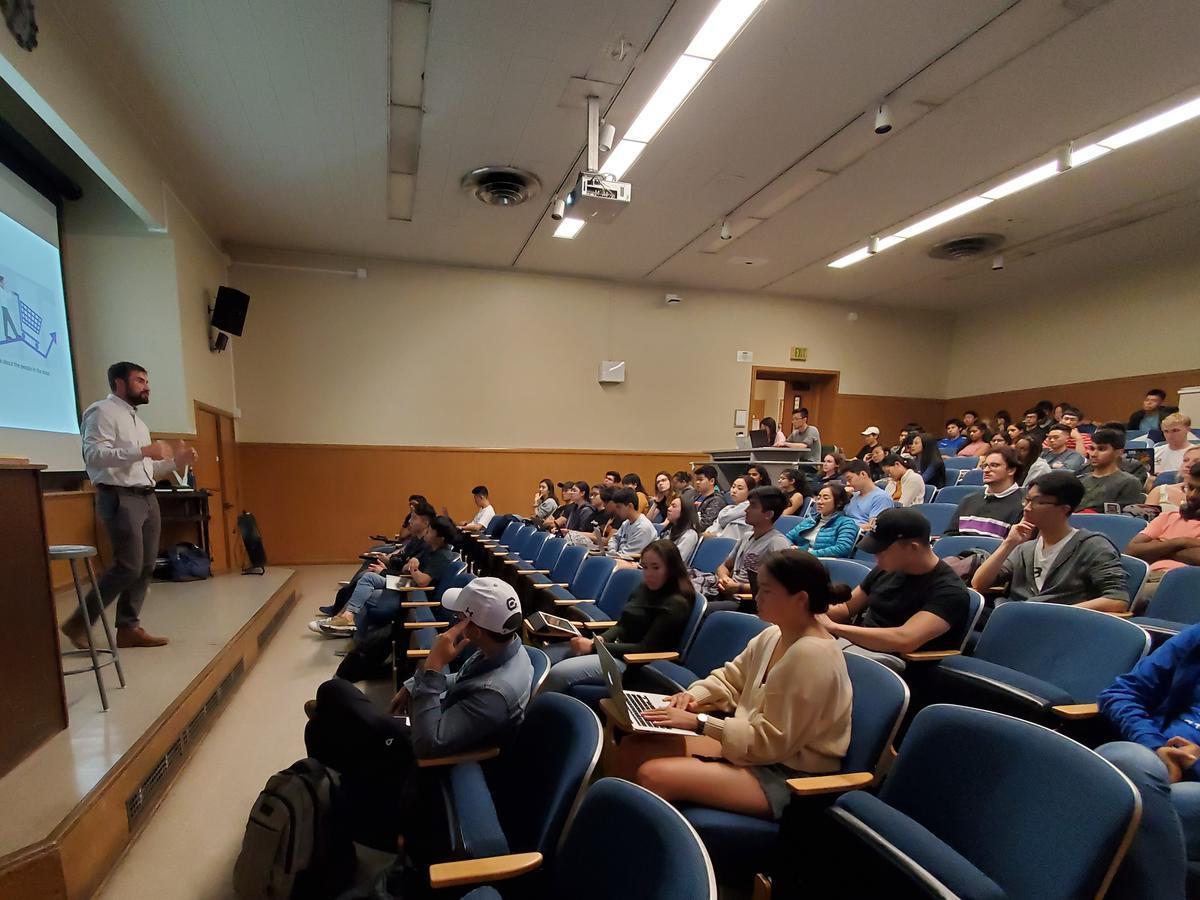
Master of Arts (M.A.) in Statistics
Professional master's program candidates are engaged in a full-time program for one year (with a possibility of a third semester depending on circumstances). The program is designed to prepare students for careers in industries that require statistical skills.
Ph.D. in Statistics
The Statistics Ph.D. program welcomes students from a broad range of theoretical, applied, and interdisciplinary backgrounds, and provides rigorous preparation for a future career in statistics, probability, or data science. Students in the Ph.D. program take core courses on the theory and application of probability and statistics during their first year.

Designated Emphasis in Computational and Data Science and Engineering
The College of Computing, Data Science, and Society (CDSS) sponsors a Designated Emphasis in Computational and Data Science and Engineering, a program committed to the development of new curricula and expanded programs aimed at the development and use of numerical and computational tools to further research across multiple disciplines.
Artificial intelligence
As a world leader in artificial intelligence with a history of challenging convention, UC Berkeley is shaping the future of this burgeoning field while exploring the larger implications of AI on society.
U.S. News & World Report rankings
Fall 2023 - berkeley lectures on the status and future of ai.
The Center for Information Technology Research in the Interest of Society and the Banatao Institute (CITRIS) , the College of Computing, Data Science and Society (CDSS) and Berkeley Artificial Intelligence Research Lab (BAIR) together continue Berkeley’s distinguished speaker series exploring the recent innovations in AI, its broader societal implications and its future potential at Berkeley and beyond. Read more about the lecture series on the CDSS website .

Data Dignity and the Inversion of AI
Date: 09/13/2023 12:00pm Speaker: Jaron Lanier, Prime Unifying Scientist, Microsoft Sponsor: CITRIS Research Exchange, CDSS and BAIR Link to view: Watch Lanier's talk

Imitation and Innovation in AI: What Four-year-olds Can Do and AI Can’t (Yet)
Date: 09/27/2023 12:00pm Speaker: Alison Gopnik, Distinguished Professor of Psychology, UC Berkeley Sponsor: CITRIS Research Exchange, CDSS and BAIR Link to view: Watch Gopnik's talk
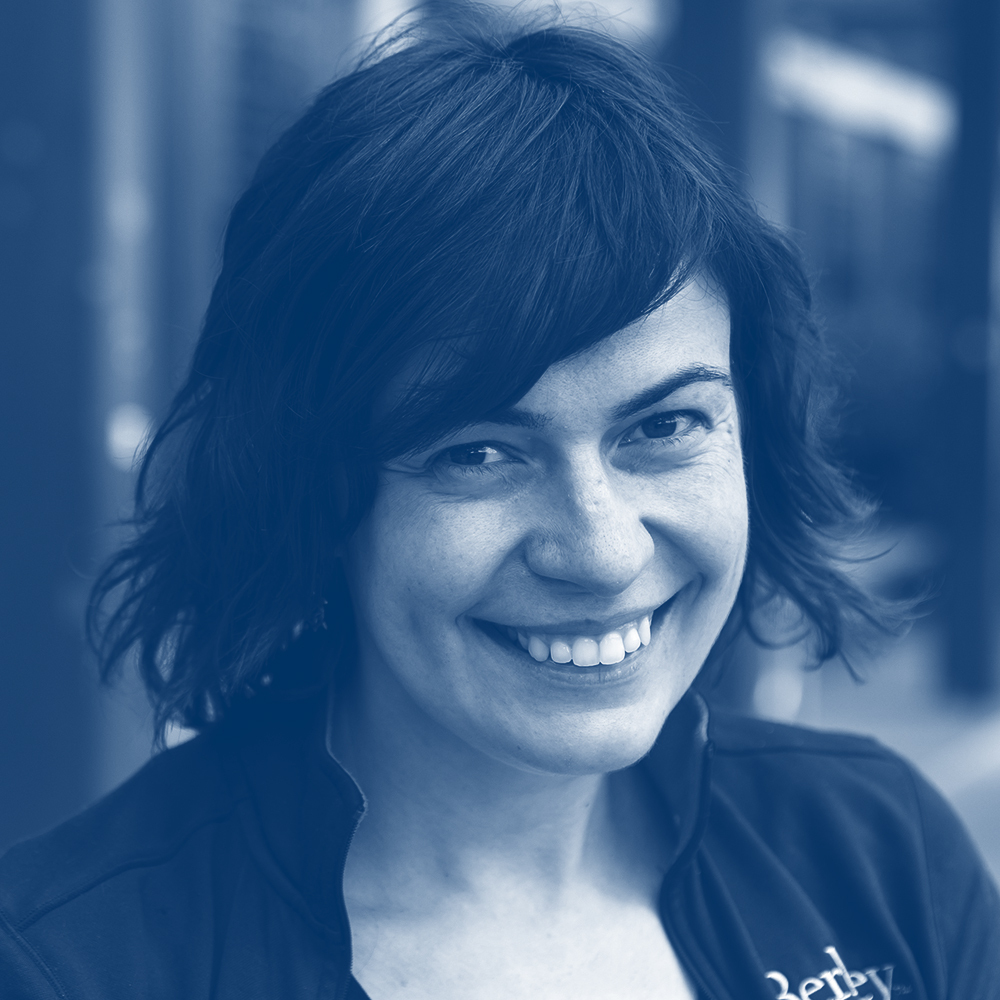
AI Agents That Do What We Want: Progress and Open Challenges
Date: 10/04/2023 12:00pm Speaker: Anca Dragan, Associate Professor of Electrical Engineering and Computer Sciences, UC Berkeley Sponsor: CITRIS Research Exchange, CDSS and BAIR Link to view: Watch Dragan's talk
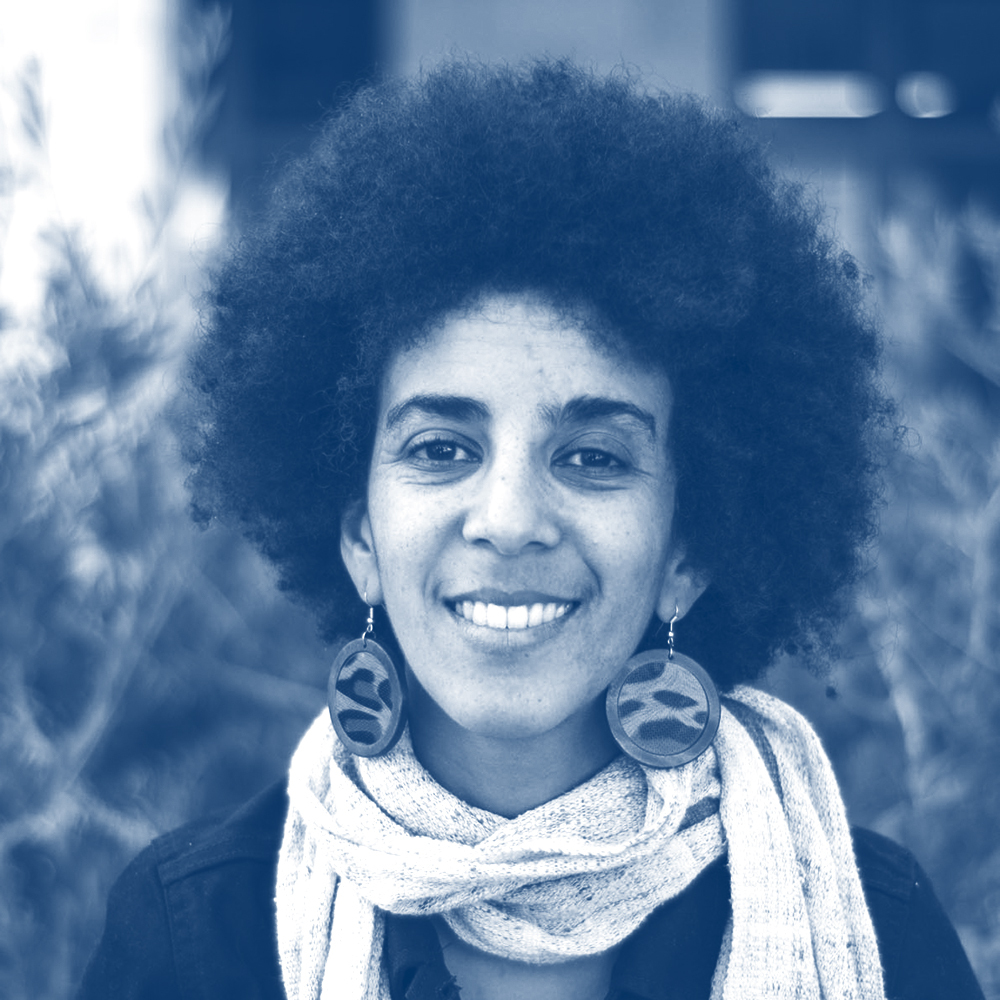
Independent Community-rooted AI Research – Postponed; will be rescheduled
Speaker: Timnit Gebru, Founder and Executive Director, Distributed AI Research Institute Sponsor: CITRIS Research Exchange, CDSS and BAIR
Past lectures - Spring 2023
During the 2023 spring semester, the primary architect of ChatGPT and leading Berkeley AI faculty presented insights and viewpoints in a series of seven public lectures presented by the CITRIS and the Banatao Institute , BAIR , Electrical Engineering and Computer Sciences (EECS) , the Academic Senate and UC Berkeley. Read more about the spring AI lecture series on Berkeley News .
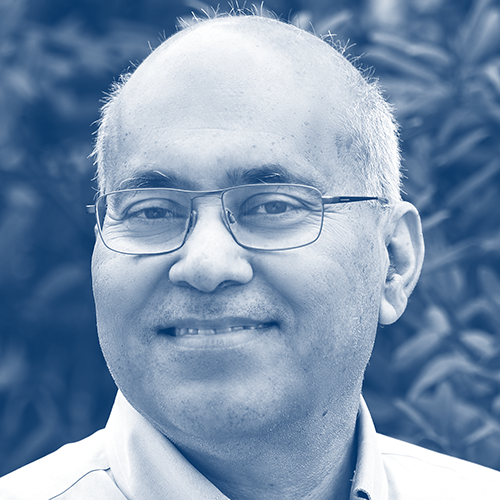
The Sensorimotor Road to Artificial Intelligence
Speaker: Jitendra Malik, Arthur J. Chick Professor of Electrical Engineering & Computer Sciences Sponsor: Martin Meyerson Berkeley Faculty Research Lectures Link to view: Watch Malik's lecture

How Not to Destroy the World With AI
Speaker: Stuart Russell, Professor, Electrical Engineering and Computer Sciences, UC Berkeley Sponsor: CITRIS Research Exchange and BAIR Link to view: Watch Russell's lecture

Reinforcement Learning with Large Datasets: a Path to Resourceful Autonomous Agents
Speaker: Sergey Levine, Associate Professor, Electrical Engineering and Computer Sciences Sponsor: CITRIS Research Exchange and BAIR Link to view: Watch Levine's talk

How AI Fails Us, and How Economics Can Help
Speaker: Mike Jordan, Pehong Chen Distinguished Professor, Electrical Engineering and Computer Sciences, UC Berkeley Sponsor: CITRIS Research Exchange and BAIR Link to view: Watch Jordan's lecture
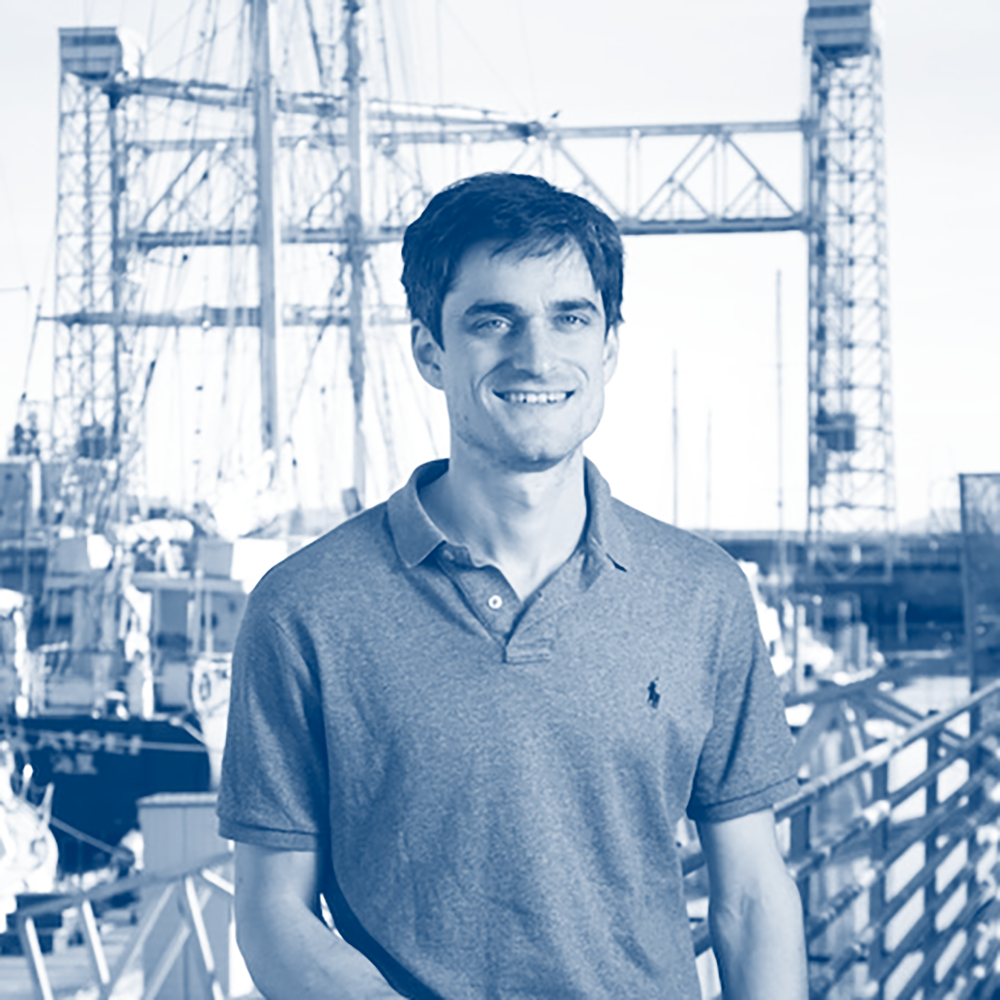
Reinforcement Learning from Human Feedback: Progress and Challenges
Speaker: John Schulman, Research Scientist and cofounder of OpenAI Sponsor: EECS and BAIR Event details: Registration Link to view: Watch Schulman's talk
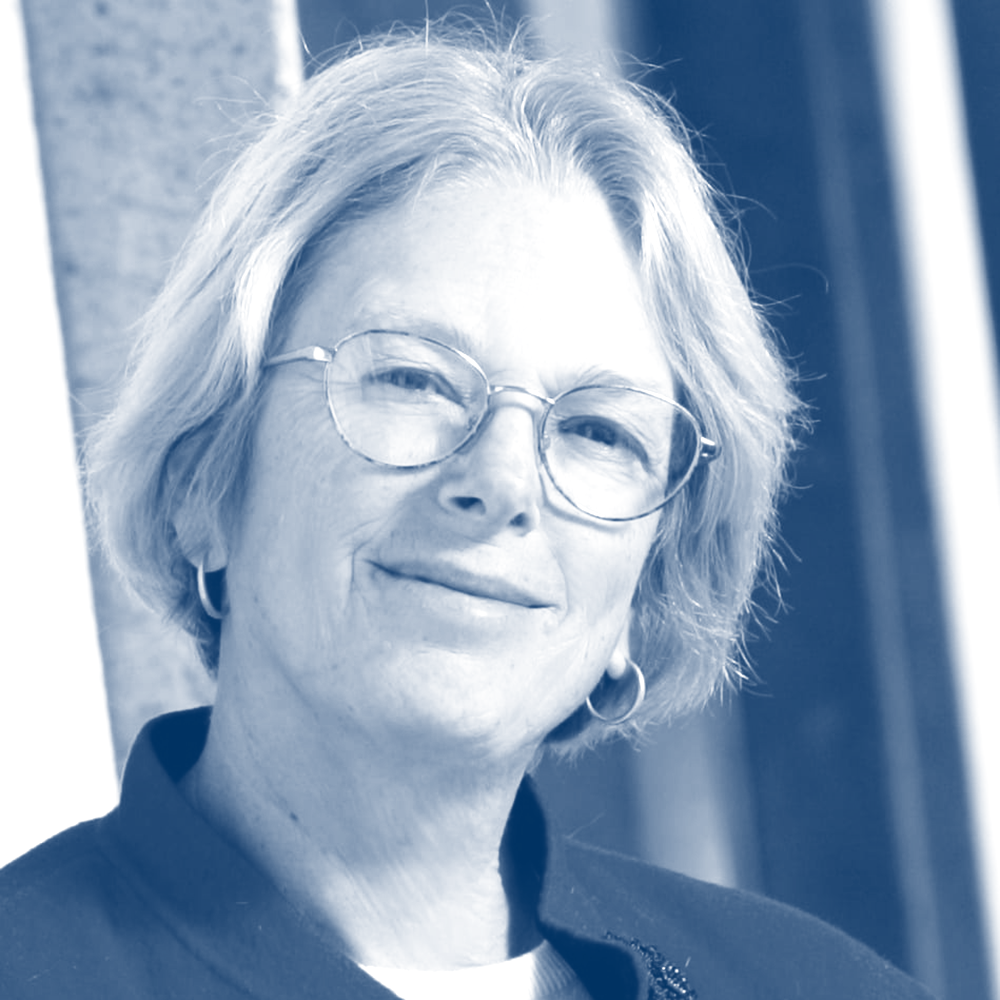
Generative AI Meets Copyright Law
Speaker: Pam Samuelson, Richard M. Sherman Distinguished Professor of Law, UC Berkeley Sponsor: CITRIS Research Exchange and BAIR Link to view: Watch Samuelson's lecture

Exploration vs Exploitation: Different Ways of Pushing AI and Robotics Forward
Speaker: Rod Brooks, MIT Professor Emeritus and Robust.AI Sponsor: BAIR Robotics Symposium Link to view: Watch Brooks' talk
“The promise of AI lies in its ability to help us solve some of the biggest challenges facing humanity, from climate change to disease prevention. But we must also recognize that these systems have the potential to exacerbate existing inequalities and biases if not designed and deployed thoughtfully.” Jennifer Chayes, Dean, College of Computing, Data Science, and Society at UC Berkeley
AI technologies in practice

Using AI and satellites to monitor California wildlife

Governor asks UC Berkeley, Stanford to assess impacts of generative AI on state

New brain implant helps paralyzed woman speak using a digital avatar

From tort law to cheating, what is ChatGPT’s future in higher education?
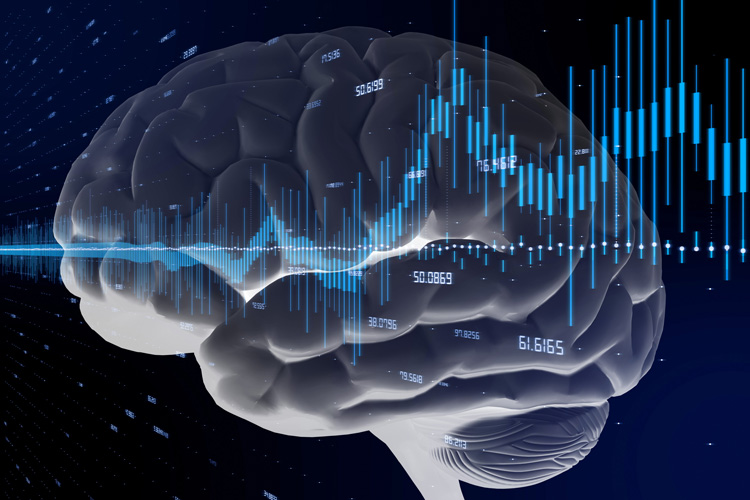
‘Raw’ data show AI signals mirror how the brain listens and learns

Massive traffic experiment pits machine learning against ‘phantom’ jams

Evolution on fast forward: Grace Gu engineers AI-optimized, bioinspired materials

New UC Berkeley initiative uses AI research to solve climate problems

What can psychology teach us about AI’s bias and misinformation problem?
For more stories and research on AI at Berkeley, visit Berkeley News
Academics and research.
AI is a significant focus for many areas around campus. Below are some examples of labs, programs, previous lectures, and more.
- Berkeley Artificial Intelligence Research Lab (BAIR) | The BAIR Lab brings together UC Berkeley researchers across the areas of computer vision, machine learning, natural language processing, planning, control, and robotics.
- Berkeley Law AI Institute | A multi-day, online executive academy to help lawyers understand AI technology and how companies use it, as well as the risks and ethical issues raised by autonomous systems.
- Berkeley AI Policy Hub | A collaboration between the UC Berkeley Center for Long-Term Cybersecurity (CLTC) and its AI Security Initiative and the CITRIS Policy Lab, the AI Policy Hub is a multidisciplinary initiative training forward-thinking graduate student researchers to develop effective governance and policy frameworks to guide artificial intelligence, today and into the future.
- Berkeley [Emergent Space Tensegrities | Energy and Sustainable Technologies | Expert Systems Technologies ] (BEST) Lab | The BEST Lab conducts research at the intersection of cutting-edge frontiers in design research, computational design, sustainability, gender equity, human-machine cognition, supervisory control, soft robotics, sensor fusion, design research and intelligent learning systems.
- The Center for Information Technology Research in the Interest of Society and the Banatao Institute (CITRIS) | CITRIS and the Banatao Institute is a University of California research center focused on creating IT solutions that generate societal and economic benefits for everyone.
- Computing, Data Science, and Society (CDSS) | CDSS leverages Berkeley’s preeminence in research and excellence across disciplines to propel data science discovery, education, and impact.
- Electrical Engineering and Computer Sciences (EECS) | EECS offers one of the strongest research and instructional programs anywhere in the world with an array of cross-disciplinary, team-driven projects.
- Haas ExecEd: AI Strategies and Applications | Participants in this program learn about AI’s current capabilities and gain an understanding into the variety of ways AI can benefit different business functions.
- Tech Policy Fellows | Offers scholars and practitioners the opportunity to spend six months to a year as a non-residential fellow at UC Berkeley to conduct research, share expertise and experiences with faculty, staff, and students and develop technical or policy interventions that support responsible technology development and use.
- Our Better Web | An independent interdisciplinary initiative at Berkeley that brings together leadership from the Schools of Information; Journalism; Law; and Public Policy; the Division of Computing, Data Science, and Society; and the CITRIS Policy Lab. Our Better Web researches and provides guidance on technical and policy strategies to mitigate harms from algorithmic amplification and algorithmic bias online.
AI and the arts

Cal Performances: Illuminations – “Human and Machine”
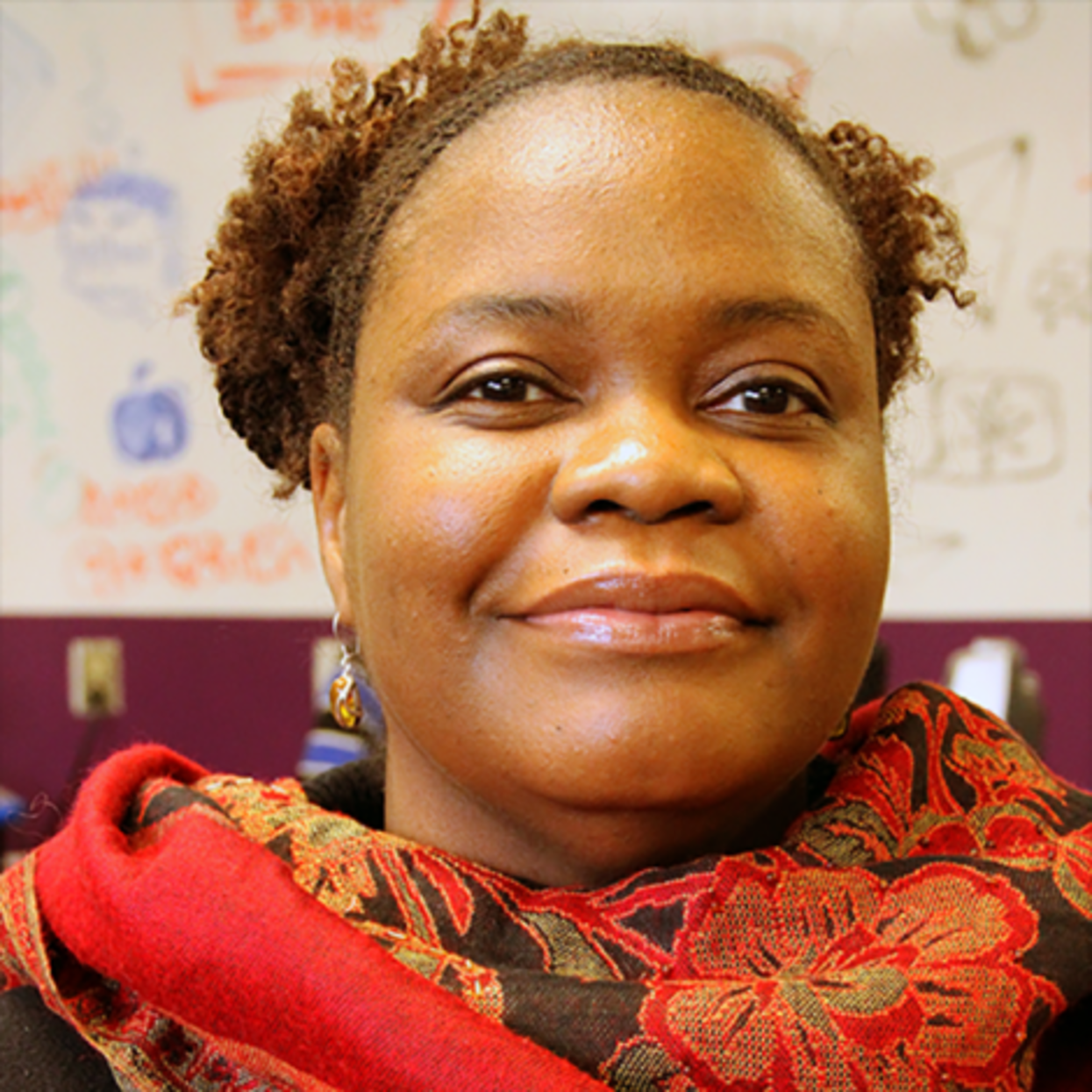
Generative Art and Deep Learning AI
Emerging AI technology has the potential to replicate some of the processes used by artists when creating their work. Dr. Nettrice Gaskins uses AI-driven software such as deep learning to train machines to identify and process images. Her approach puts the learning bias of race to the forefront by using AI to render her artwork using different source images and image styles.
Speaker Biography
Dr. Nettrice R. Gaskins is an African American digital artist, academic, cultural critic and advocate of STEAM fields. In her work she explores "techno-vernacular creativity" and Afrofuturism.
Dr. Gaskins teaches, writes, "fabs”, and makes art using algorithms and machine learning. She has taught multimedia, visual art, and computer science with high school students. She earned a BFA in Computer Graphics with Honors from Pratt Institute in 1992 and an MFA in Art and Technology from the School of the Art Institute of Chicago in 1994. She received a doctorate in Digital Media from Georgia Tech in 2014. Currently, Dr. Gaskins is a 2021 Ford Global Fellow and the assistant director of the Lesley STEAM Learning Lab at Lesley University. She is an advisory board member for the School of Literature, Media, and Communication at Georgia Tech. Her first full-length book, Techno-Vernacular Creativity and Innovation is available through The MIT Press. Gaskins' AI-generated artworks can be viewed in journals, magazines, museums, and on the Web. Her series of 'featured futurist' portraits are on view at the Smithsonian Arts and Industries Building through early July 2022.
Gaskins served as Board President of the National Alliance for Media Arts and Culture (The Alliance) and was on the board of the Community Technology Centers Network (CTCNet). She is currently on the board of Artisan’s Asylum.
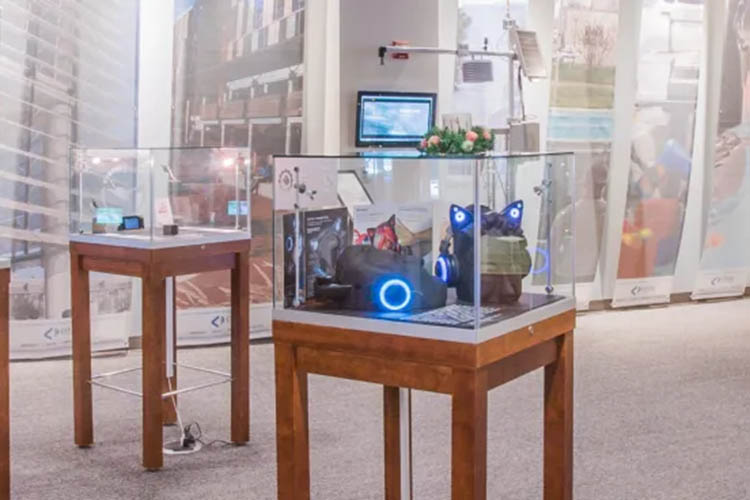
CITRIS Tech Museum
Artwork on this page
The below image is a UC Berkeley-inspired collage constructed from images generated in Dall-E-2. The prompts used to generate the imagery included specific campus landmarks, such as “the Campanile,” “Sproul Hall,” “Doe Library,” and “Memorial Stadium.”

Service update: Some parts of the Library’s website will be down for maintenance on August 11.
Secondary menu
- Log in to your Library account
- Hours and Maps
- Connect from Off Campus
- UC Berkeley Home
Search form
Dissertations & theses: home, finding dissertations & theses.
The majority of print dissertations in the UC Berkeley Libraries are from UC Berkeley. The libraries have a nearly complete collection of Berkeley doctoral dissertations (wither online, in print, or both), and a large number of Berkeley master's theses.
UC Berkeley
UC Berkeley PhD Dissertations
Dissertations and Theses (Dissertation Abstracts) UCB access only 1861-present
Index and full text of graduate dissertations and theses from North American and European schools and universities, including the University of California, with full text of most doctoral dissertations from UC Berkeley and elsewhere from 1996 forward. Dissertations published prior to 2009 may not include information about the department from which the degree was granted.
UC Berkeley Master's Theses
UC Berkeley Digital Collections 2011-present
Selected UC Berkeley master's theses freely available online. For theses published prior to 2020, check UC Library Search for print availability (see "At the Library" below).
UC Berkeley dissertations may also be found in eScholarship , UC's online open access repository.
Please note that it may take time for a dissertation to appear in one of the above online resources. Embargoes and other issues affect the release timing.
At the Library:
Dissertations: From 2012 onwards, dissertations are only available online. See above links.
Master's theses : From 2020 onwards, theses are only available online. See above links.
To locate older dissertations, master's theses, and master's projects in print, search UC Library Search by keyword, title or author. For publications prior to 2009 you may also include a specific UC Berkeley department in your search: berkeley dissertations <department name> .
Examples: berkeley dissertations electrical engineering computer sciences berkeley dissertations mechanical engineering
University of California - all campuses
Index and full text of graduate dissertations and theses from North American and European schools and universities, including the University of California.
WorldCatDissertations UCB access only
Covers all dissertations and theses cataloged in WorldCat, a catalog of materials owned by libraries worldwide. UC Berkeley faculty, staff, and students may use the interlibrary loan request form for dissertations found in WorldCatDissertations.
Worldwide - Open Access
Networked Digital Library of Theses and Dissertations (NDLTD)
The Networked Digital Library of Theses and Dissertations (NDLTD) is an international organization dedicated to promoting the adoption, creation, use, dissemination, and preservation of electronic theses and dissertations (ETDs).
Open Access Theses and Dissertations (OATD)
An index of over 3.5 million electronic theses and dissertations (ETDs). To the extent possible, the index is limited to records of graduate-level theses that are freely available online.
- Last Updated: Mar 11, 2024 2:47 PM
- URL: https://guides.lib.berkeley.edu/dissertations_theses

People & Community

Research & Impact

Career Services

Applying for the PhD
The Fall 2025 UC Berkeley Graduate Application will open on Thursday, September 12, 2024. Click here to access the online application .
PhD Application Deadline for Fall 2025 Admission: December 3, 2024, at 8:59 PM PDT.
- The application process is completely online . All application materials (including official GRE and TOEFL/IELTS scores) are due by the application deadline of December 3, 2024, at 8:59 PM PDT.
- GRE: Required. To ensure you meet the December 3rd application deadline, please take the GRE no later than early November.
- TOEFL/IELTS: Required for eligible applicants . To ensure you meet the application deadline, please take the TOEFL or IELTS no later than early November.
- Students are admitted to the GSPP PhD Program for the fall term only, and on a full-time basis. There are no rolling admissions, and there is no spring admission for the PhD Program.
- After submitting your application, you will receive an email from UC Berkeley's Graduate Admissions Office confirming your submission. You may log back into your application to monitor the status of materials received or processed, such as fee waivers, test scores, and letters of recommendation.
- The answers to many common questions about the PhD application process can be found in our FAQ section .
- For more information about the Goldman School, refer to our 2024-2025 GSPP Program Bulletin .
PhD Application Checklist of Required Items
Before starting the online application:
- Review the application checklist for required items and instructions below. These instructions are specific to Goldman School PhD applicants for Fall 2025. Please do not submit additional or supplemental materials.
- Review the Frequently Asked Questions < here >.
- Additional Questions: Contact PhD admissions at [email protected]
|
|
Address these areas in 5-7 double-spaced pages: |
|
|
In your Personal History Statement, please describe how your personal background informs your decision to pursue a PhD in Public Policy. You may also include any relevant information on the following: How you have overcome barriers to access in higher education, evidence of how you have come to understand the barriers faced by others, evidence of your academic service to advance equitable access to higher education for women, racial minorities, and individuals from other groups that have been historically underrepresented in higher education, evidence of your research focusing on underserved populations or related issues of inequality, or evidence of your leadership among such groups. Please note that the Personal History Statement should not duplicate the Statement of Purpose. There is no page length requirement for the Personal History Statement. This essay is generally 1-2 pages, double-spaced. |
|
| Select 3 preferences for a faculty advisor if you are admitted to the program ( ). The assignment of faculty advisors is not guaranteed and is based on the availability of each faculty member. |
|
| Upload a current CV reflecting your academic and professional work experience, education, and any other relevant information. |
|
| A solo-authored, original research paper. This should be under 30 pages, double-spaced. We strongly prefer a writing sample that goes beyond just a literature review or summary of existing research. Its purpose is to make it evident that the student can undertake policy research. |
|
| Transcripts should list the name of your undergraduate or graduate institution and degree conferral date. If you studied abroad, either as part of an exchange program administered by your school or on your own, please upload those transcripts as well. In addition to unofficial transcripts, international applicants should also upload degree certificates/diplomas with evidence of degree conferral. Official transcripts will be required only if admitted. |
|
| Applicants may submit up to 5 letters of recommendation. Please follow the instructions in the online application for the online letter of recommendation submission process. Letters may arrive up until 11:59 PM PST on December 17th (14 days after the application deadline). Letters that arrive after this date are not guaranteed to be reviewed with your application. |
|
|
GRE scores are due the same day the application is due. Keep in mind that it may take a few weeks for your official scores to be received and matched to your application electronically. Our institution code is 4833 (Graduate Programs). Reservations for the GRE should be made in advance through: The Education Testing Service (ETS) (Phone: (609) 771-7670 or 1-800-GRE-CALL). |
|
| For Fall 2024, tests taken before are considered invalid even if your score was reported to Berkeley. Use institution code 4833 (Graduate Programs). You may sign up for the TOEFL at . As an exception to the TOEFL, UC Berkeley also accepts the IELTS exam. All IELTS scores must be sent electronically from the testing center, no institution code is required. Tests taken before will not be accepted. Your most recent overall Band score must be at least 7 on a 9-point scale. The address for identification purposes: University of California, Berkeley, Graduate Division, Sproul Hall Rm 318, MC 5900, Berkeley, CA 94720. GSPP does not offer TOEFL/IELTS waivers, however, some applicants may qualify for an exemption. Please review UC Berkeley's exemption criteria and direct any questions to UC Berkeley's Graduate Admissions Office at . |
|
| The application fee must be submitted with the online application and is not refundable. If you are a U.S. Citizen or current Permanent Resident, the application fee is ; for all others, the fee is Eligible applicants may apply for an . To do so, you must be a U.S. citizen or current permanent resident. International students are ineligible. Our department does not grant application fee waivers. No exceptions. |
|
| Please complete this section if you wish to address specific issues that have adversely impacted your academic performance and/or any aspect of your application. |
After submitting your application, you will receive an email from UC Berkeley's Graduate Admissions Office confirming your submission. You may log back into your application to monitor the status of materials received or processed, such as fee waivers, test scores, and letters of recommendation. Admissions decisions are typically sent in early March via email. Please check your Spam/Junk/Events folders if you do not receive your decision by early March.
Financial Support
Fellowships.
GSPP typically admits only two or three applicants each year and offers support to admitted PhD students through a combination of department fellowships, university multi-year fellowships, and teaching and research assistantships. While funding packages vary by student, incoming PhD students are generally awarded five years of funding support consisting of fees and non-resident tuition, student health insurance, and a living stipend. For admitted PhD students who secure funding from external sources outside of UC Berkeley, external funding also goes towards the five years of funding support.
All funding packages are contingent on students meeting minimum academic and residency requirements for the Goldman School and the University throughout the tenure of support. United States citizens and Permanent Residents are required to achieve California residency by the end of their first year in California to receive continued fee support.
Graduate Student Instructors
In addition, there are many opportunities for PhD students to work as graduate student instructors at GSPP and other social science departments. These appointments provide a full fee remission (in most cases) and a monthly salary.
Research Opportunities
There are many opportunities on campus for GSPP PhD students to engage in research (in many cases, in a paid research position) both at the Goldman School and elsewhere on campus. For example, research opportunities typically exist in campus departments including Energy and Resources Group, Labor Center, Global Policy Lab, California Policy Lab, People Lab, and Opportunity Lab, to name a few. These appointments may also provide a fee remission (in most cases) and a monthly salary.
Questions About the Online Application? Contact:
GSPP PhD Admissions [email protected]

Electrical Engineering & Computer Sciences PhD
The Department of Electrical Engineering and Computer Sciences offers three graduate programs in Electrical Engineering: the Master of Engineering (MEng) in Electrical Engineering and Computer Sciences, the Master of Science (MS), and the Doctor of Philosophy (PhD).
Master of Engineering (MEng)
The Master of Engineering (MEng) in Electrical Engineering & Computer Sciences, first offered by the EECS Department in the 2011-2012 academic year, is a professional masters with a larger tuition than our other programs and is for students who plan to join the engineering profession immediately following graduation. This accelerated program is designed to train professional engineering leaders who understand the technical, economic, and social issues around technology. The interdisciplinary experience spans one academic year and includes three major components: (1) an area of technical concentration, (2) courses in leadership skills, and (3) a rigorous capstone project experience.
Master of Science (MS)
The Master of Science (MS) emphasizes research preparation and experience and, for most students, provides an opportunity to lay the groundwork for pursuing a PhD.
Doctor of Philosophy (PhD)
The Berkeley PhD in EECS combines coursework and original research with some of the finest EECS faculty in the US, allowing students to prepare for careers in academia or industry. Our alumni have gone on to hold amazing positions around the world.
Contact Info
[email protected]
215 Cory Hall
Berkeley, CA 94720
At a Glance
Admit Term(s)
Application Deadline
December 9, 2024
Degree Type(s)
Doctoral / PhD
Degree Awarded
GRE Requirements
Computational Biology PhD

The main objective of the Computational Biology PhD is to train the next generation of scientists who are both passionate about exploring the interface of computation and biology, and committed to functioning at a high level in both computational and biological fields.
The program emphasizes multidisciplinary competency, interdisciplinary collaboration, and transdisciplinary research, and offers an integrated and customizable curriculum that consists of two semesters of didactic course work tailored to each student’s background and interests, research rotations with faculty mentors spanning computational biology’s core disciplines, and dissertation research jointly supervised by computational and biological faculty mentors.
The Computational Biology Graduate Group facilitates student immersion into UC Berkeley’s vibrant computational biology research community. Currently, the Group includes over 46 faculty from across 14 departments of the College of Letters and Science, the College of Engineering, the College of Natural Resources, and the School of Public Health. Many of these faculty are available as potential dissertation research advisors for Computational Biology PhD students, with more available for participation on doctoral committees.

Graduate Program
Ph.d. in economics.
The Ph.D. program at Berkeley is designed for students interested in pursuing advanced study and conducting original research in Economics. The Ph.D. degree is awarded in recognition of the recipient's qualifications as a general economist and of the ability to make scholarly contributions in fields of specialization. Additionally, the Economics Ph.D. program is residential, there is no remote enrollment option.
In advancing to the Ph.D. degree, students pass through two major stages:
- Preparation for candidacy typically takes two to three years. During the first two semesters, students take courses to achieve competence in econometric methods, methods of economic history and fundamentals of microeconomic and macroeconomic theory. During the next two years, students prepare for examination in two fields of specialization of their choosing, prepare a dissertation prospectus, and take an oral examination. When these steps are completed, students are advanced to candidacy.
- Completion of a dissertation after advancing to candidacy typically takes one to two years. The dissertation must be based on original research and represent a significant contribution to the body of Economic knowledge.
The entire process takes approximately five to six years, although some students are able to complete the program in less time. Below is an overview of the program requirements by year and other pertinent information.

Program Requirements
- Years 4 to 6
- Program Rules
- Frequently Used Forms
- Financial Support

IMAGES
VIDEO
COMMENTS
The Master of Science (MS) emphasizes research preparation and experience and, for most students, is a chance to lay the groundwork for pursuing a PhD. Doctor of Philosophy (PhD) The Berkeley PhD in EECS combines coursework and original research with some of the finest EECS faculty in the US, preparing for careers in academia or industry.
Graduate Admissions and Degree Programs. Berkeley EECS graduate programs consistently top national rankings, providing one of the best educational experiences anywhere. Our graduate students are immersed in an intellectually rigorous, interdisciplinary, globally aware environment, and have the opportunity to study and do research with faculty ...
The minimum graduate admission requirements are: A bachelor's degree or recognized equivalent from an accredited institution; A satisfactory scholastic average, usually a minimum grade-point average (GPA) of 3.0 (B) on a 4.0 scale; and. Enough undergraduate training to do graduate work in your chosen field.
Welcome to the Computer Science Division at UC Berkeley, one of the strongest programs in the country. We are renowned for our innovations in teaching and research. Berkeley teaches the researchers that become award winning faculty members at other universities. This website tells the story of our unique research culture and impact, and our ...
Here is the Graduate Division's office address for identification purposes: University of California, Berkeley, Graduate Division, Sproul Hall Rm 318, MC 5900, Berkeley, CA 94720. More information: TOEFL website; IELTS website (6) Application Fee (submitted with the online application) Fee for domestic applicants: $135.
Rigorous academics instill the theoretical and research capabilities required to advance diverse interests — from information design, architecture, and assurance, to human-computer interaction and the social, economic, and public policy implications of information. Ph.D. students work closely with faculty recognized as information pioneers.
The online learning experience provides students with the opportunity to earn a UC Berkeley School of Information education from wherever they are. The Virtual Campus hosts everything students need to succeed in one place. Students have one-click access to their live classes, upcoming assignments, grades, and faculty office hours.
This CS major is for students enrolled in the College of Computing, Data Science, and Society (CDSS). Berkeley emphasizes the science of computer science, which means much more than just computer programming. It includes the theory of computation, the design and analysis of algorithms, the architecture and logic design of computers, programming ...
Application Prerequisites for All Graduate Research Degree Programs. The minimum graduate admission requirements are: A bachelor's degree or recognized equivalent from an accredited institution. If you are in your final year of studies, and you expect to earn your degree by mid-August of the following year, you may apply.
Expected PhD Timeline: Semester 1: Identify a faculty adviser. Semesters 1-4: Complete breadth courses; complete major and minor requirements. Semester 4: Complete the preliminary research paper. Semester 5: Complete preliminary exam. Semester 6-8: Complete qualifying exam; advance to candidacy.
Berkeley offers a wide-range of more than 100 graduate programs, including master's, professional, and doctoral programs. We consistently have the highest number of top-ranked doctoral programs in the nation. Browse Berkeley's graduate programs and use the filters to narrow your search and learn more about each program.
The No. 1-ranked 3 Master of Information and Data Science (MIDS) program, delivered online from the UC Berkeley School of Information (I School), prepares data science professionals to be leaders in the field. By blending a multidisciplinary curriculum, experienced faculty from top data-driven companies, an accomplished network of peers, and the flexibility of online learning, the WASC ...
Krste Asanović. Professor Emeritus, Professor in the Graduate School 579B Soda Hall, 510-642-6506; [email protected] Research Interests: Computer Architecture & Engineering (ARC); Integrated Circuits (INC); Operating Systems & Networking (OSNT); Design, Modeling and Analysis (DMA) Education: 1998, PhD, Computer Science, UC Berkeley; 1987, BA, Electrical and Information Sciences, University ...
The online master's program brings UC Berkeley to students, wherever they are. The WASC-accredited program blends a multidisciplinary curriculum, experienced faculty from UC Berkeley and top data-driven companies, an accomplished network of peers, and the flexibility of online learning.Request more infoComplete a Rigorous, Holistic CurriculumThe multidisciplinary online data science master ...
Highly ranked graduate programs in computer science; Scheduling flexibility; 24/7 tech support for distance learners; Cons: Less diverse student body #8 University of California, Berkeley Online PhD Computer Science Berkeley, CA. Website. Tuition: $11,700. The University of California was founded in 1868.
The Master of Science (M.S.) and Doctor of Philosophy (Ph.D.) programs emphasize research preparation and experience. Joint Bachelors/Masters (5th Year M.S.) This program is available only to Berkeley EECS and CS L&S Undergraduates. It is a five year combined Bachelor/Master's program geared toward outstanding and highly motivated students who ...
AI is a significant focus for many areas around campus. Below are some examples of labs, programs, previous lectures, and more. Berkeley Artificial Intelligence Research Lab (BAIR) | The BAIR Lab brings together UC Berkeley researchers across the areas of computer vision, machine learning, natural language processing, planning, control, and ...
Online: UC Berkeley PhD Dissertations. Dissertations and Theses (Dissertation Abstracts) UCB access only 1861-present . Index and full text of graduate dissertations and theses from North American and European schools and universities, including the University of California, with full text of most doctoral dissertations from UC Berkeley and elsewhere from 1996 forward.
The Fall 2025 UC Berkeley Graduate Application will open on Thursday, September 12, 2024. ... University of California, Berkeley, Graduate Division, Sproul Hall Rm 318, MC 5900, Berkeley, CA 94720. ... there are many opportunities for PhD students to work as graduate student instructors at GSPP and other social science departments. These ...
Related: 13 Best Jobs for Students Earning a Computer Science Degree. 9. University of Rhode Island. The University of Rhode Island in Kingston, Rhode Island, is a research-oriented university with a computer science Ph.D. program. Classes are offered on campus and online, but the degree cannot be completed entirely online.
The Department of Electrical Engineering and Computer Sciences (EECS) at University of California, Berkeley offers two graduate programs in Computer Science: the Master of Science (MS), and the Doctor of Philosophy (PhD). The TOEFL iBT® is given online through the internet at designated testing site.
We're thrilled you're considering Berkeley for your graduate study. We offer more than 100 programs for master's, professional, and doctoral students to pursue their dreams. ... Select "University of California at Berkeley" as the recipient and "Graduate Admissions" 318 Sproul Hall #5900, Berkeley, CA 94720-5900 as the school/division.
The Master of Engineering (MEng) in Electrical Engineering & Computer Sciences, first offered by the EECS Department in the 2011-2012 academic year, is a professional masters with a larger tuition than our other programs and is for students who plan to join the engineering profession immediately following graduation. This accelerated program is ...
The Computational Biology Graduate Group facilitates student immersion into UC Berkeley's vibrant computational biology research community. Currently, the Group includes over 46 faculty from across 14 departments of the College of Letters and Science, the College of Engineering, the College of Natural Resources, and the School of Public Health.
Ph.D. in EconomicsThe Ph.D. program at Berkeley is designed for students interested in pursuing advanced study and conducting original research in Economics. The Ph.D. degree is awarded in recognition of the recipient's qualifications as a general economist and of the ability to make scholarly contributions in fields of specialization.